Sirotin Intelligence Community
Where Visionaries Shape the Future of Space
Sirotin Intelligence brings you a curated community of the top global visionaries, innovators, and thought leaders across technology, policy, defense, legal, and commercial sectors. Our goal is singular: to decode the complexities of space and drive actionable insights that shape the future of humanity's greatest frontier.
Join Us Today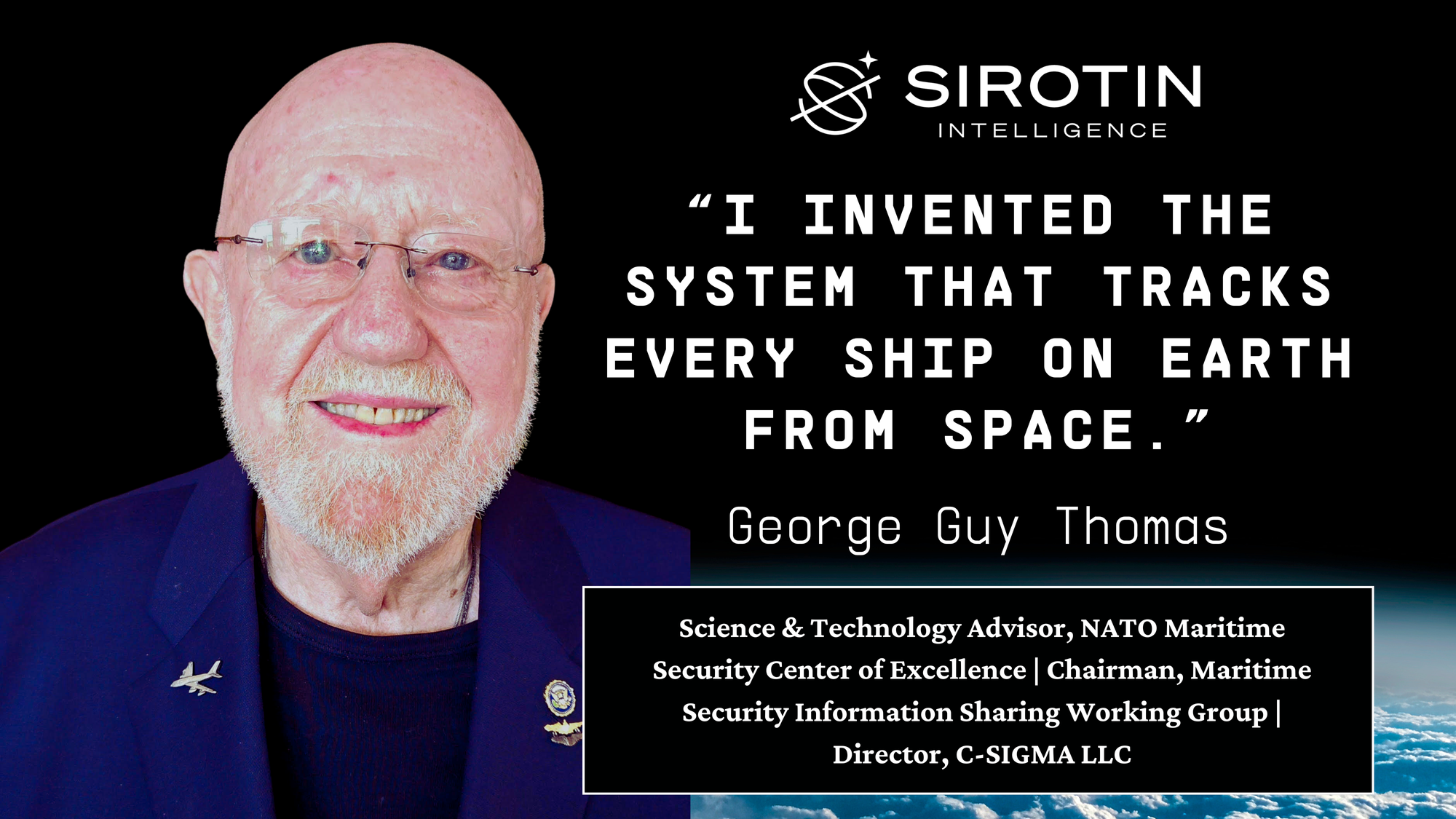
About George Guy Thomas
George Guy Thomas is a globally recognized expert in maritime security, intelligence operations, and space-based surveillance systems. With over six decades of service and expertise, Thomas has been instrumental in creating the systems and strategies that define modern maritime awareness and global security.
A retired U.S. Navy Commander, Thomas dedicated 23 years to intelligence and reconnaissance operations, serving in hostile environments on ships, submarines, and aircraft. As one of the first U.S. Navy officers designated as a space operations sub-specialist, he was the first to achieve quadruple qualifications across surface, submarine, air, and space domains. Throughout his service, Thomas operated in high-stakes Cold War missions, participated in 28 MiG encounters with nearly 20 successful engagements, and contributed to classified intelligence collection efforts. His career highlights include leading the operational testing and evaluation of the Navy's EP-3E reconnaissance aircraft and bringing to life the Air Force's RC-135V/W Rivet Joint Block III fleet of 16 aircraft, advancing airborne intelligence capabilities. He also contributed to the development of classified and tactical intelligence systems, including the conception of the Tactical Information Broadcast System (TIBS) and helping to create the Integrated Broadcast System (IBS).
Thomas is the inventor of Satellite AIS (S-AIS), a transformative technology enabling global ship tracking and improving global maritime safety and security. This innovation has been widely recognized as one of the most significant maritime advancements since radar. Building on this achievement, he conceived and developed C-SIGMA (Collaboration in Space for International Global Maritime Awareness), an international initiative that integrates unclassified space-based systems to enhance maritime situational awareness. C-SIGMA, which remains a cornerstone of global maritime awareness, directly supports U.S. National Space Policy (2010) and fosters international collaboration to improve safety, environmental protection, and resource conservation.
A pivotal contributor to the National Maritime Security Strategy (2005) and the National Maritime Domain Awareness Technology Roadmap (2005), Thomas played a central role in shaping the international approach to maritime domain awareness, with these documents having far-reaching impact beyond U.S. borders. While Task #1 of the U.S. National Space Policy Implementation Directive (2010) focused on international cooperation in utilizing space systems for maritime safety and security, its implementation was unfortunately shelved due to unknown internal disagreements.
Currently, Thomas serves as Chairman of the Maritime Situational Awareness Working Group within NATO ACT Combined Joint Operations from the Sea Centre of Excellence, which operates under the leadership of a U.S. Navy 3-star admiral and British Commodore deputy. In this role, he facilitates collaboration among international stakeholders to address maritime security, environmental, and economic challenges. As an advisor to the NATO Maritime Security Centre of Excellence in Istanbul, Turkey, Thomas continues to contribute to the development of NATO's maritime strategies, enhancing global coordination in maritime surveillance and situational awareness.
Thomas's contributions have earned him numerous accolades, including the Space Foundation's Lifetime Achievement Award (2021) for his pioneering work in maritime safety using space system capabilities, the USGIF Individual Achievement Award (2015) for advancing space-based maritime awareness, the Distinguished Civilian Service Award (DCSA) - the highest award given to a civilian by DHS and the first awarded to someone assigned to the USCG in 4 years, and multiple nominations for the National Medal of Technology and Innovation and the Space Technology Hall of Fame. As an author, he has published foundational works, including "A Silent Warrior Steps Out of the Shadows" and "New Sentinels of the Seas – Satellite AIS and the Birth of Global Maritime Awareness."
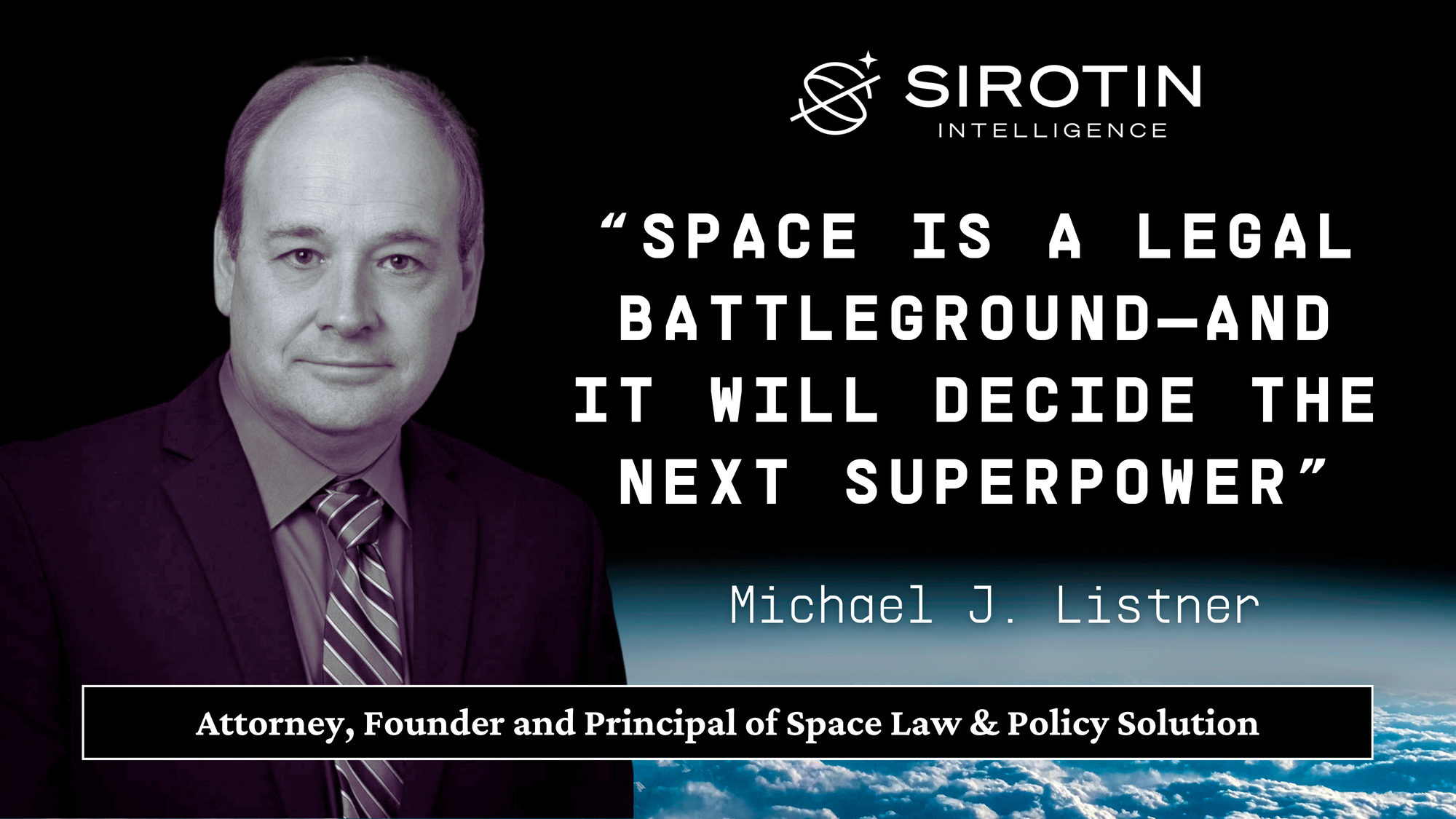
About Michael J. Listner
Michael J. Listner is an attorney, advisor, and the founder of Space Law & Policy Solutions, where he provides expert consultation on outer space law, policy, and national security. With a background in lawfare and hybrid warfare strategy, Michael has served as General Counsel (pro tem) and Senior Advisor to Lesath International, authored the quarterly space security briefing The Précis, and participated as an observer in the Global Expert Group on Sustainable Lunar Activities.
Learn more:
Space Law & Policy Solutions
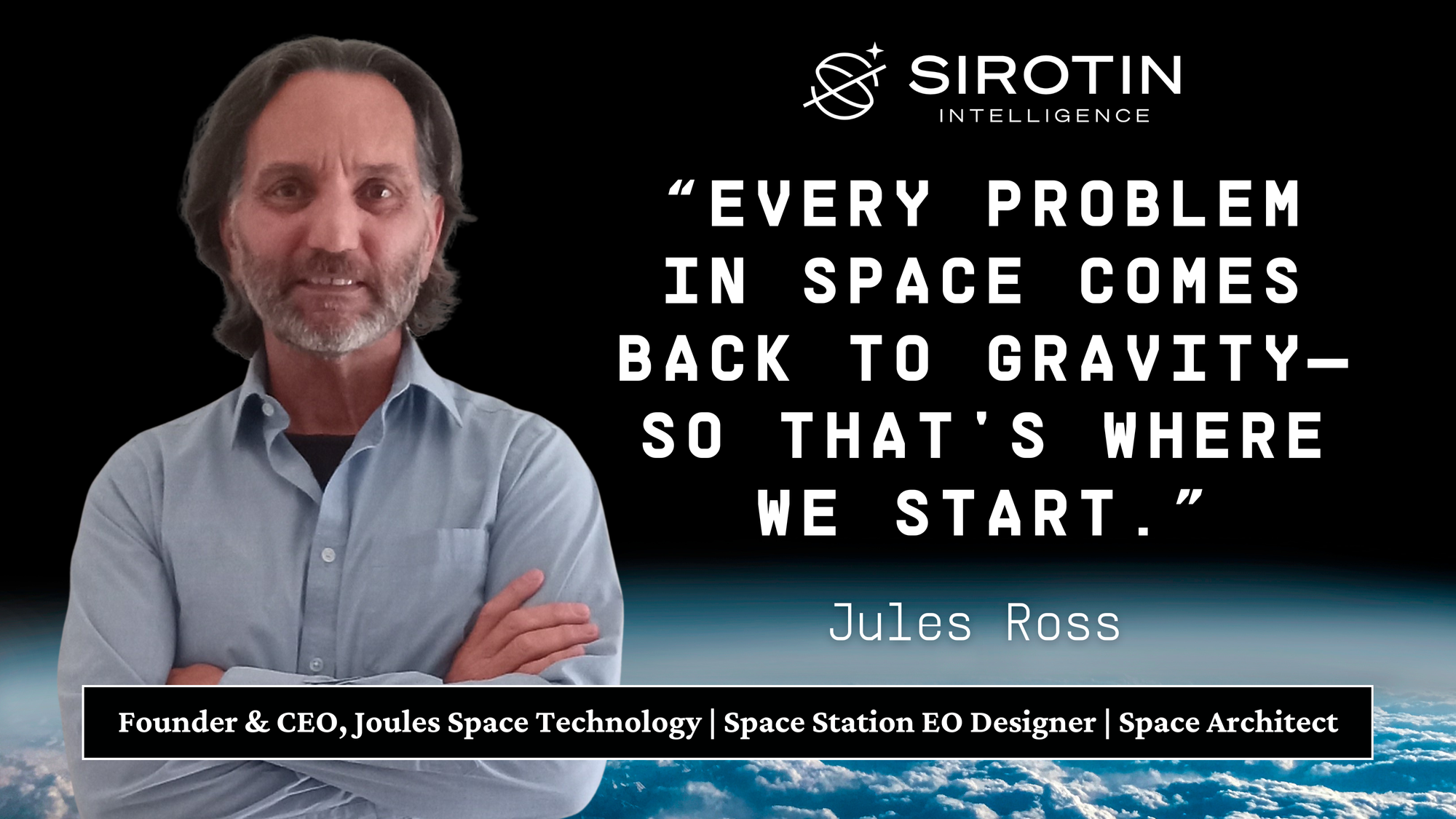
About Jules Ross
Jules Ross is the founder, CEO, and lead designer of Joules Space Technology, where he has spent 16 years developing Space Station EO, investing $200,000 in man-hours on its first stage. With a background in calculus and computer science engineering from the University of Florida, he collaborates with professors from prestigious universities and stays current through lectures from NASA, JPL, and MIT. His expertise spans artificial gravity, AI, and space architecture, complemented by his unique background as an award-winning physical comedian and Venice Beach performer. This blend of technical knowledge and artistic creativity drives his company's mission to make space human-friendly.
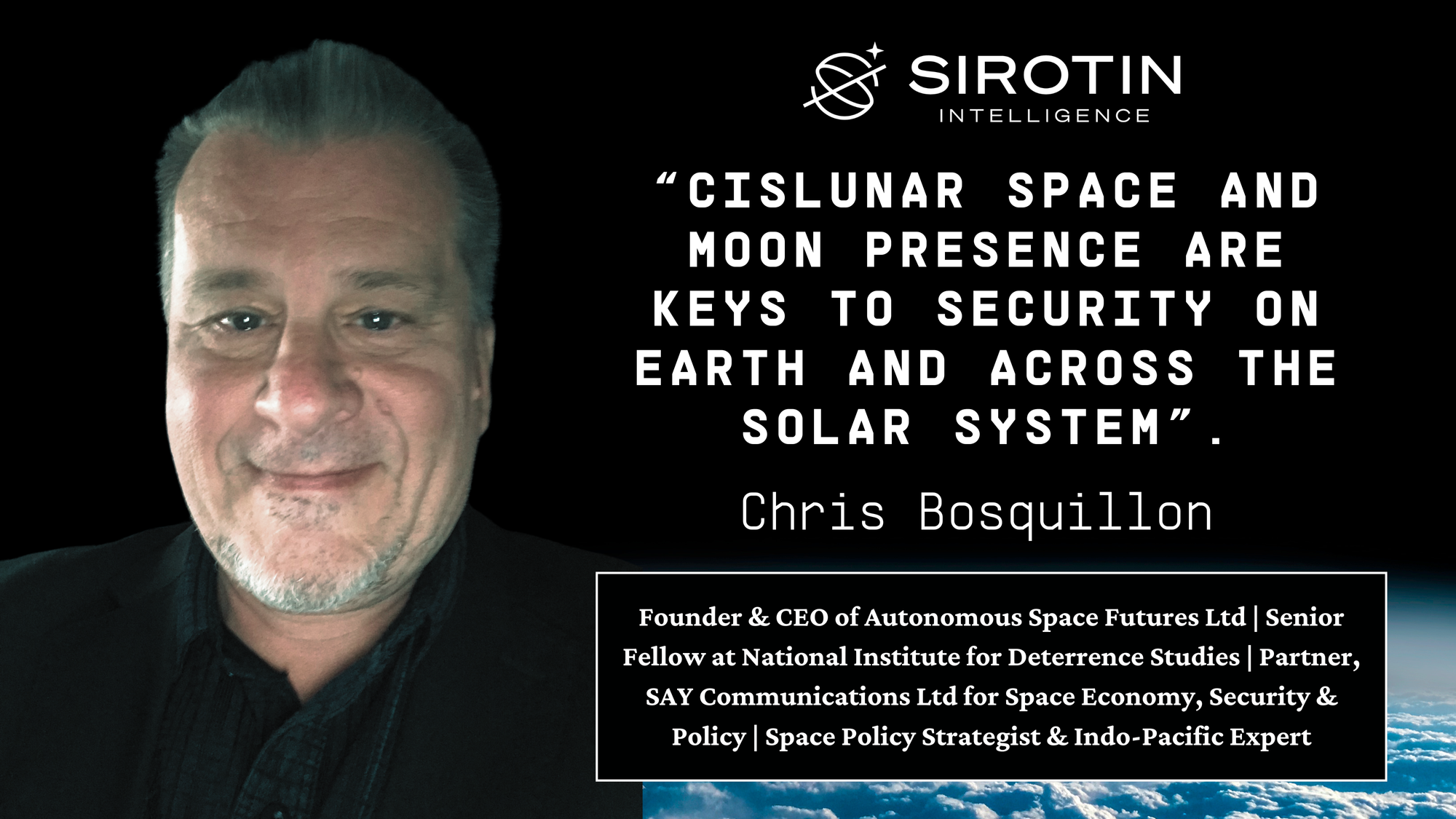
About Christophe Bosquillon
Christophe Bosquillon, founder and CEO of Autonomous Space Futures Ltd, brings decades of Indo-Pacific experience to his work in space policy and development. Drawing from his background in engineering, business, international relations, and Asian languages, he focuses on the intersection of space economics, security, and geopolitics. As a senior fellow at the National Institute for Deterrence Studies and partner at SAY Communications Ltd, he advocates for balanced approaches to space security while promoting industrial development in orbit, cislunar space, and beyond. His work includes mentoring space entrepreneurs, contributing to lunar business development through UN-affiliated NGOs, and publishing insights on space governance and technology with institutions like MIT, all while maintaining a pragmatic, non-partisan approach to advancing both civilian and defense space policies.
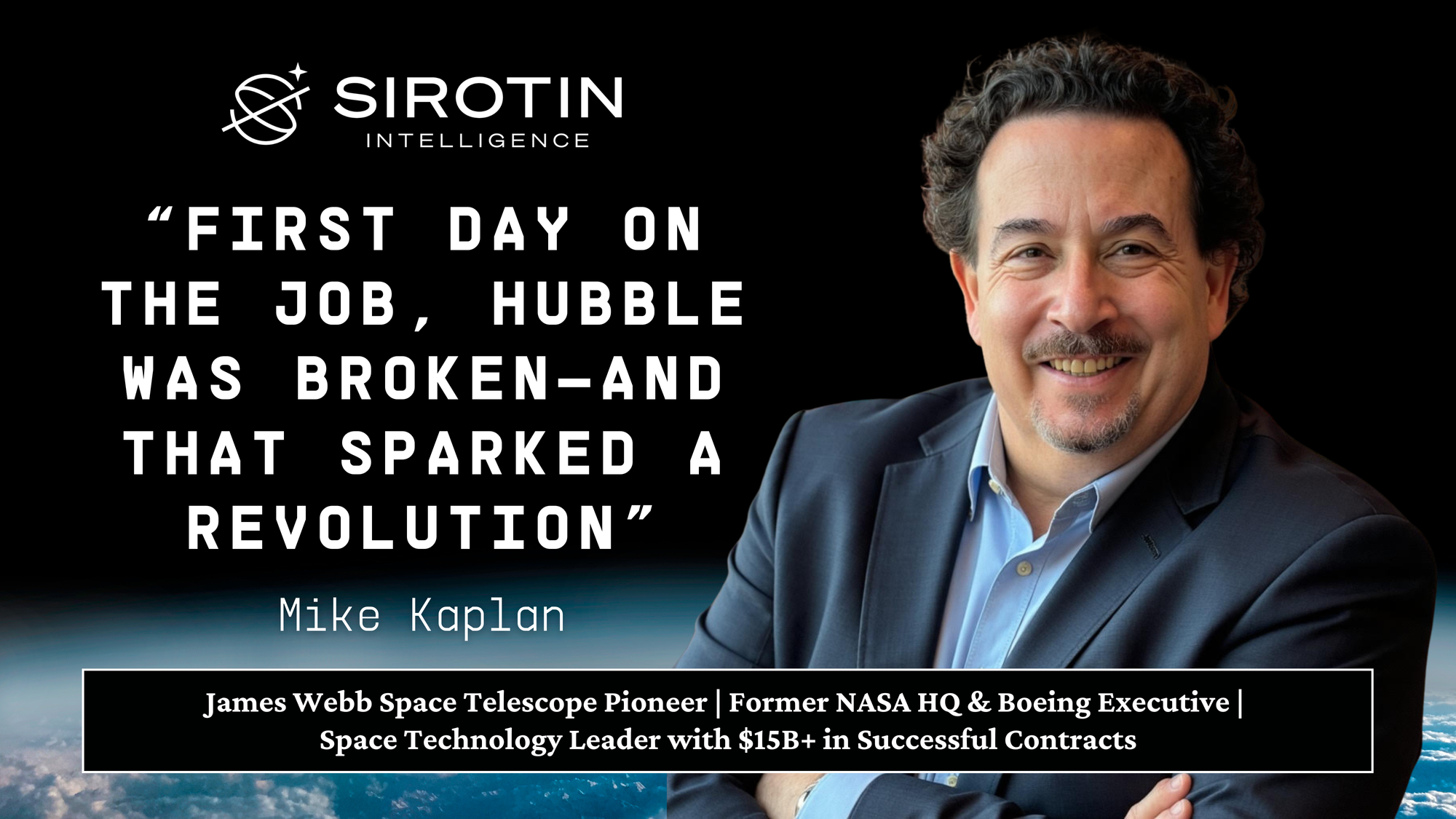
About Mike Kaplan
Mike Kaplan is a thought leader in multiple space domains, with extensive experience in government (NRL and NASA HQ), industry (Ball Aerospace, Boeing, SSL/MDA, Raytheon Technologies, and LeoStella), and academia (Embry-Riddle Aeronautical University). His success spans from "Legacy Space” to “New Space,” where he has directed teams in developing new space technologies and products, including highly complex payloads, spacecraft subsystems, spacecraft buses, planetary landers, robotic satellite servicers, and complete missions from LEO to deep space across the civil, commercial, and national security sectors. He has created and secured over $15 billion in USG and commercial markets, boasting a career capture success rate of over 70%. Mike has led the creation of several transformational space missions, such as the James Webb Space Telescope (JWST), the Spitzer Space Telescope, and the Stratospheric Observatory for Infrared Astronomy (SOFIA). Recently, he has focused on proliferated low Earth orbit (LEO) constellations for Earth observation/ISR, communications, and space domain awareness missions. Mike earned a BSE in Aerospace & Mechanical Sciences/Engineering Physics from Princeton University and an MS in Electrophysics from The George Washington University. He is also an Adjunct Faculty member at Embry-Riddle Aeronautical University, where he teaches “Space Technology & Systems" and “The Launch Industry” classes to master's students. Mike was elected an Associate Fellow of the AIAA, is a member of the Small Satellite and Space Systems Technical Committees, a Senior Member of the IEEE, and part of the Space SMART think tank. He enjoys technology, travel, hiking, and photography, and resides in Boulder, CO, with his wife, Karen Miller, and their Goldendoodle, Luke Skywalker.
Read history story here
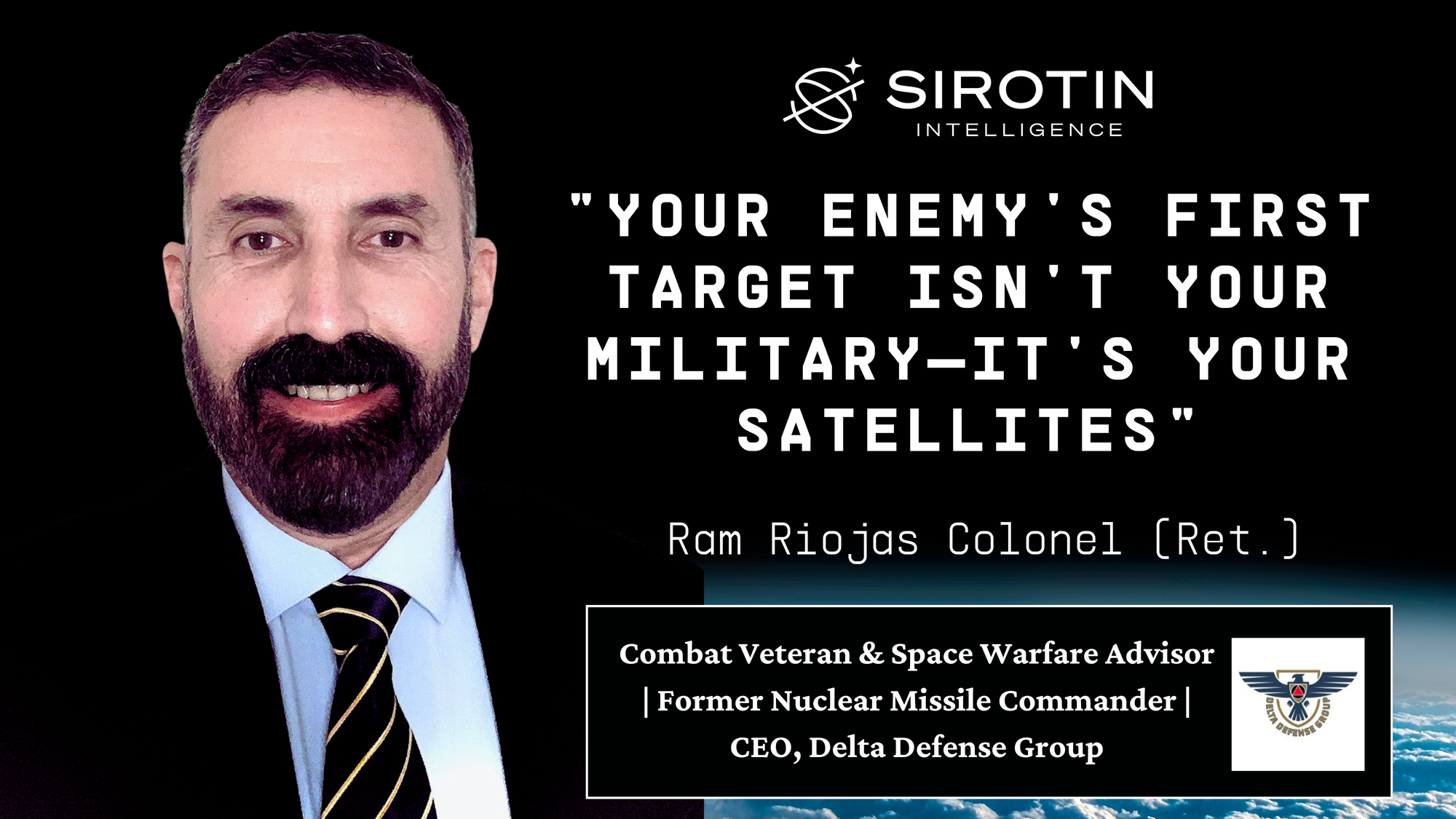
About Ram Riojas Colonel (Ret.)
Ram Riojas is a globally acclaimed CEO, Aerospace and Intelligence Executive, Defense Consultant, Senior Military Advisor, and decorated combat veteran with 29 years of proven service across the defense spectrum. As the CEO and President of Delta Defense Group, LLC, he brings deep operational expertise in Air, Space, Missile, Nuclear, and Cyber Operations—coupled with hands-on experience in Intelligence, Special Operations, Defense Budgeting & Procurement, Foreign Affairs, and International Security Cooperation. His career is a testament to mission-focused leadership and real-world impact.
During his 26 years on active duty, Ram served with the U.S. Air Force, NATO, the Office of the Secretary of Defense, various Combatant Commands, and the National Reconnaissance Office. Retiring as a Colonel in 2022, he earned respect and credibility through assignments in the U.S., Middle East, Asia, and Europe—completing eight combat deployments and over 150 combat missions in Afghanistan, Iraq, and the Horn of Africa. His extensive field experience and commitment to excellence resonate with military professionals who value discipline, precision, and accountability.
Renowned for his ability to execute multi-billion-dollar budgets and lead cross-functional, multi-domain, and multinational teams of more than 500 personnel, Ram transitioned seamlessly from government service to a global defense leadership role. His achievements were recently recognized with an induction into the 2024 Who’s Who in America by Marquis Publications. Today, he is a trusted advisor to the U.S. Government and its most critical allied partners—including key Ministries of Defense—providing pragmatic counsel on national security, military modernization, and transformative defense initiatives.
About Delta Defense Group, LLC
Delta Defense Group, LLC stands at the forefront of defense consulting and military advising. Our global team delivers trusted, professional services across the defense, air & space, intelligence, cyber, nuclear, munitions, and drone sectors. With decades of combined military (DoD & NATO), intelligence community, and private sector experience, we support foreign Ministries of Defense & Interior, U.S. DoD & DoS, intelligence agencies, and commercial enterprises. Our battle-tested, in-theater expertise ensures that we meet your tactical, operational, and strategic needs with proven effectiveness.
Learn more:
Read history story here
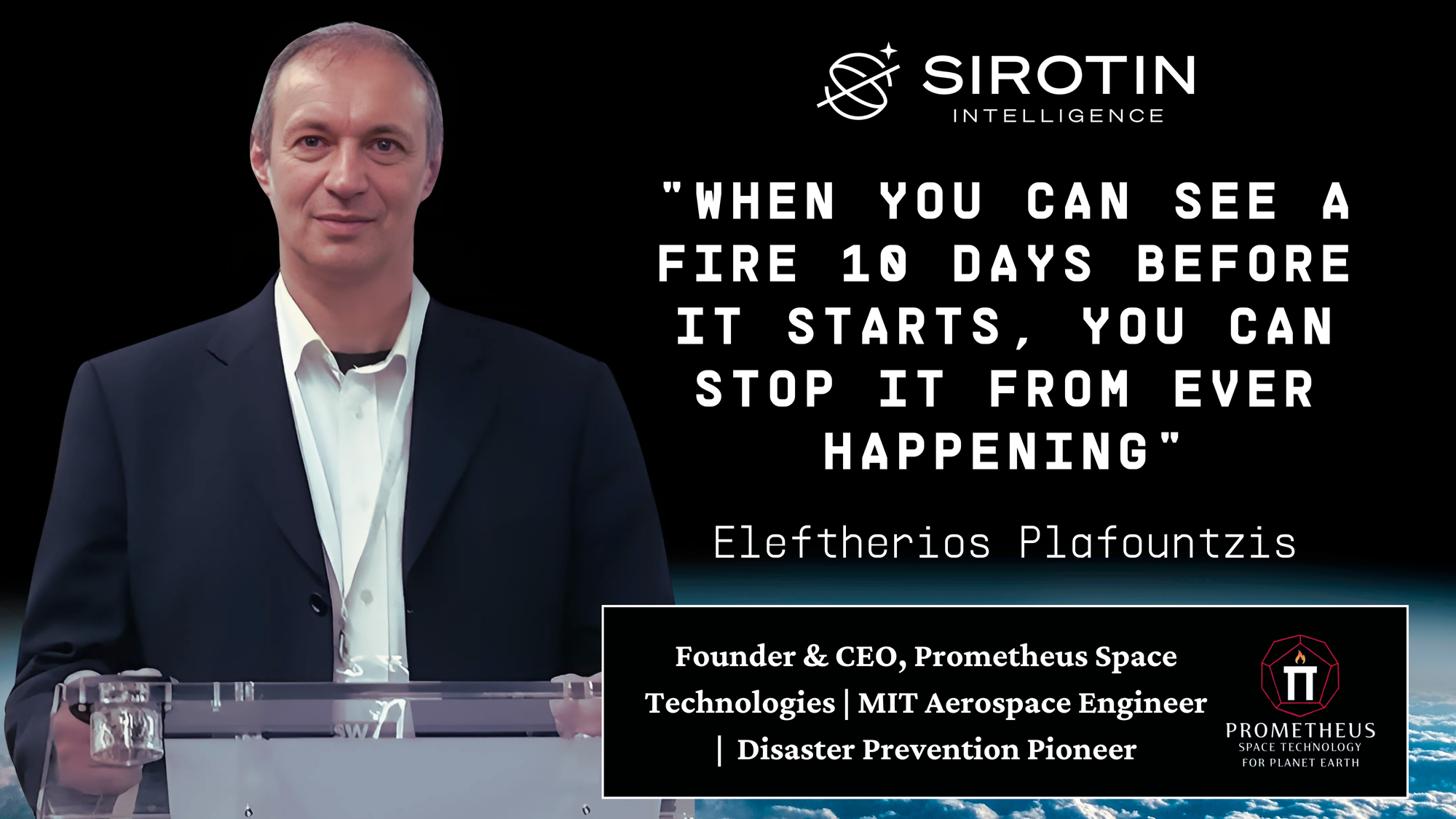
About Eleftherios Plafountzis
Eleftherios Plafountzis is the Founder and CEO of Prometheus Space Technologies, bringing over fifteen years of aerospace experience and prestigious certifications from MIT and Harvard to his pioneering work in space technology and AI for wildfire risk management. His company's journey began with space debris management innovations like the Charybdis Active Debris Removal Satellite System (CADRESS) before pivoting after the devastating Greek wildfires of July 23, 2018. This event inspired the development of the Prometheus Fire Guardian platform, a cutting-edge solution utilizing GIS tools, machine learning, and multi-orbital satellite imagery. As an accomplished author of two books on aerospace and astrophysics, and through strategic partnerships with NASA and NOAA, Eleftherios continues to drive Prometheus's mission to safeguard communities from wildfire threats.
Learn more:
Read history story here
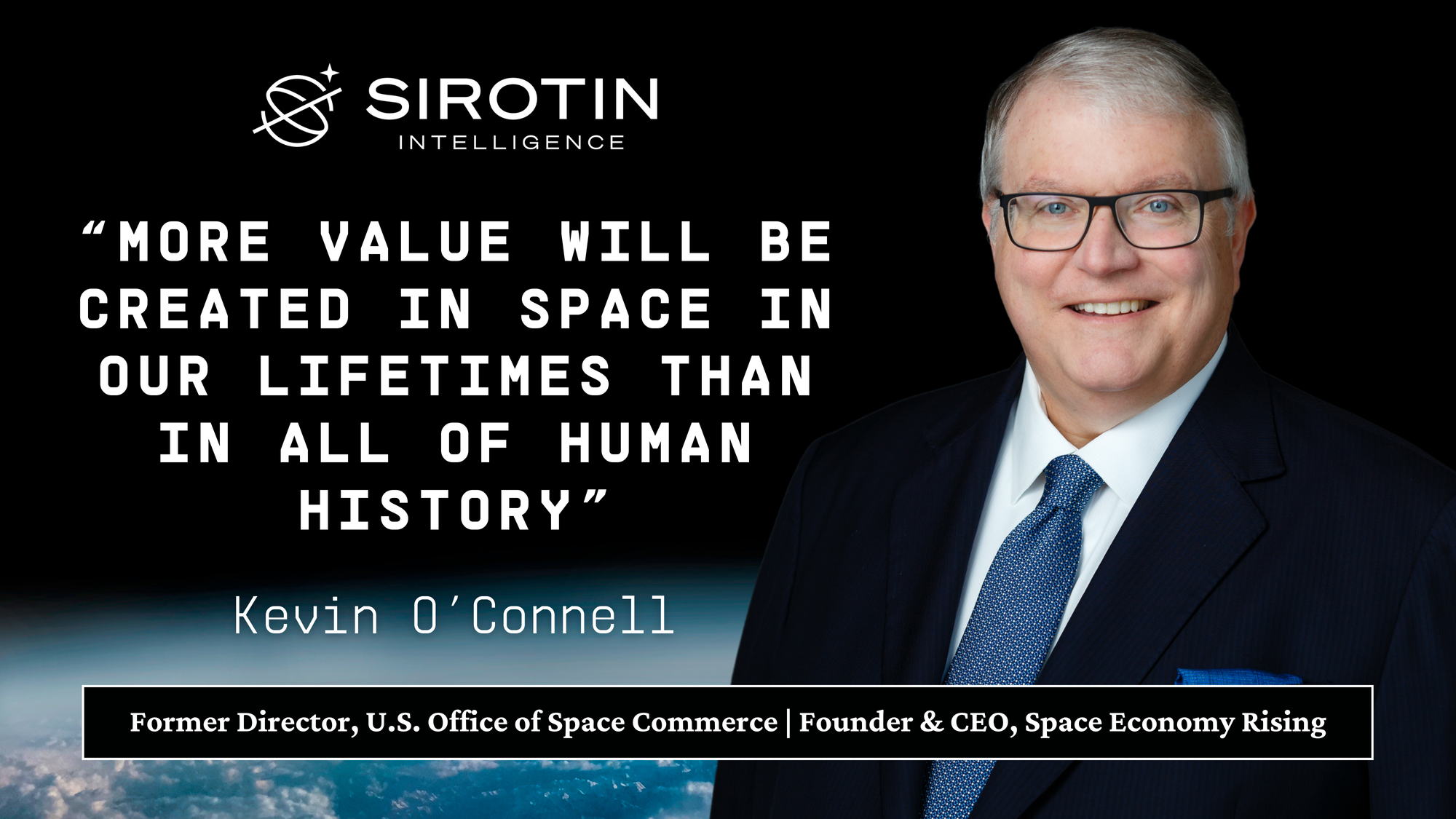
About Kevin O'Connell
Kevin M. O’Connell is a recognized expert on space commerce, the global space economy, and U.S. national security matters. For almost four decades, he has focused on space commercialization and technological competitiveness and how to advance them in global markets. He has also focused on how these innovations impact U.S. and allied national security.
Mr. O’Connell is the CEO of Space Economy Rising, a firm that provides advisory services to space companies, related high-tech companies, and stakeholders in the space economy. There, Mr. O’Connell provides strategy, finance, and regulatory advice, helps investors assess space market trends and investment opportunities, and identifies pathways for increased participation in the space economy. Aside from several private sector boards, he Chairs the Advisory Board of the Institute of Space Commerce and sits on the advisory board of the Association of Commercial Space Professionals and the Lunar Policy Platform.
Mr. O’Connell was the winner of the 2024 U.S. Geospatial Intelligence Foundation’s Lundahl-Finney lifetime achievement award for his enduring work on geospatial issues and space commercialization.
Mr. O’Connell’s previous role was as Director of the Office of Space Commerce (OSC) at the U.S. Department of Commerce, from 2018-2021. He was the principal U.S. government advocate for the commercial space industry, including identifying new ways to facilitate innovation and increase market size. He focused on the growing role of the private sector in space, encouraged new space partnerships, worked to ensure the competitiveness of the U.S. commercial space industry, encouraged regulatory reform, and advanced American leadership in space safety and sustainability. Mr. O’Connell has testified before Congress on seven occasions about space policy and regulatory issues, U.S. space competitiveness, and the growth of space commerce. He was awarded the Vice President’s Dedicated Service Award for his support to the National Space Council.
Mr. O’Connell also expanded international outreach on space commerce with a number of U.S. allies and partners to promote new partnerships, effective regulation, and to advance space safety and sustainability. His overseas space activities included participation in the U.S.-Japan Comprehensive Space Dialogue, as a member of a Space Delegation to Luxembourg, and high-level discussions with the EU, India, Thailand, Singapore, Indonesia, and Commonwealth partners. He continues many of these international discussions about space policy and market issues in a private capacity today.
Mr. O’Connell’s prior roles include positions in The Department of Defense, The Department of State, The National Security Council, Office of the Vice President, and Office of the Director of Central Intelligence. Within the private sector, Mr. O’Connell was a senior research analyst for almost a decade at RAND and served as the first Director of RAND’s Intelligence Policy Center. In 2007, he founded Innovative Analytics and Training, LLC, a consulting firm specializing in assessing high-tech market trends in areas of space and geospatial markets, cloud computing, and cyber analytics.
Mr. O’Connell is a recognized expert on the policy, security, and commercial aspects of satellite remote sensing technology and markets. He served as the Executive Secretary of the Independent Commission on the National Imagery and Mapping Agency (NIMA) in 2000 and later as a senior advisor to multiple directors of the National Geospatial-Intelligence Agency. He was a long-standing member of NOAA’s federal advisory committee, ACCRES, including as Chair between 2012 and 2016.
Mr. O’Connell has been a regular author on space commerce and regulatory issues. Recent articles have covered how countries increase their participation in the global space economy, the need for space mission authorization, and the economic and business aspects of space sustainability. He contributed to "Space Policies for the New Space Age: Competing on the Final Economic Frontier,” by Bruce Cahan and Mir Sadat (NewSpace New Mexico, December 2020). Earlier, he co-authored Commercial Observation Satellites: at the Leading Edge of Global Transparency(ASPRS/RAND, 2000), which foreshadowed the roles that commercial satellites have today on global security matters.
Mr. O’Connell has over twenty years of graduate instruction in Georgetown University’s School of Foreign Service and the RAND Graduate School.
He currently serves as a Professor of Practice in the Thunderbird School of Global Management and is a frequent lecturer on space commerce at prominent academic and research organizations including MIT, SDA Bocconi, The George Washington University, and the University of Tokyo. He is co-host of the Space Economy Insights podcast produced under the SpaceWatch.Global brand.
Learn more:
Space Economy Rising
Read history story here.
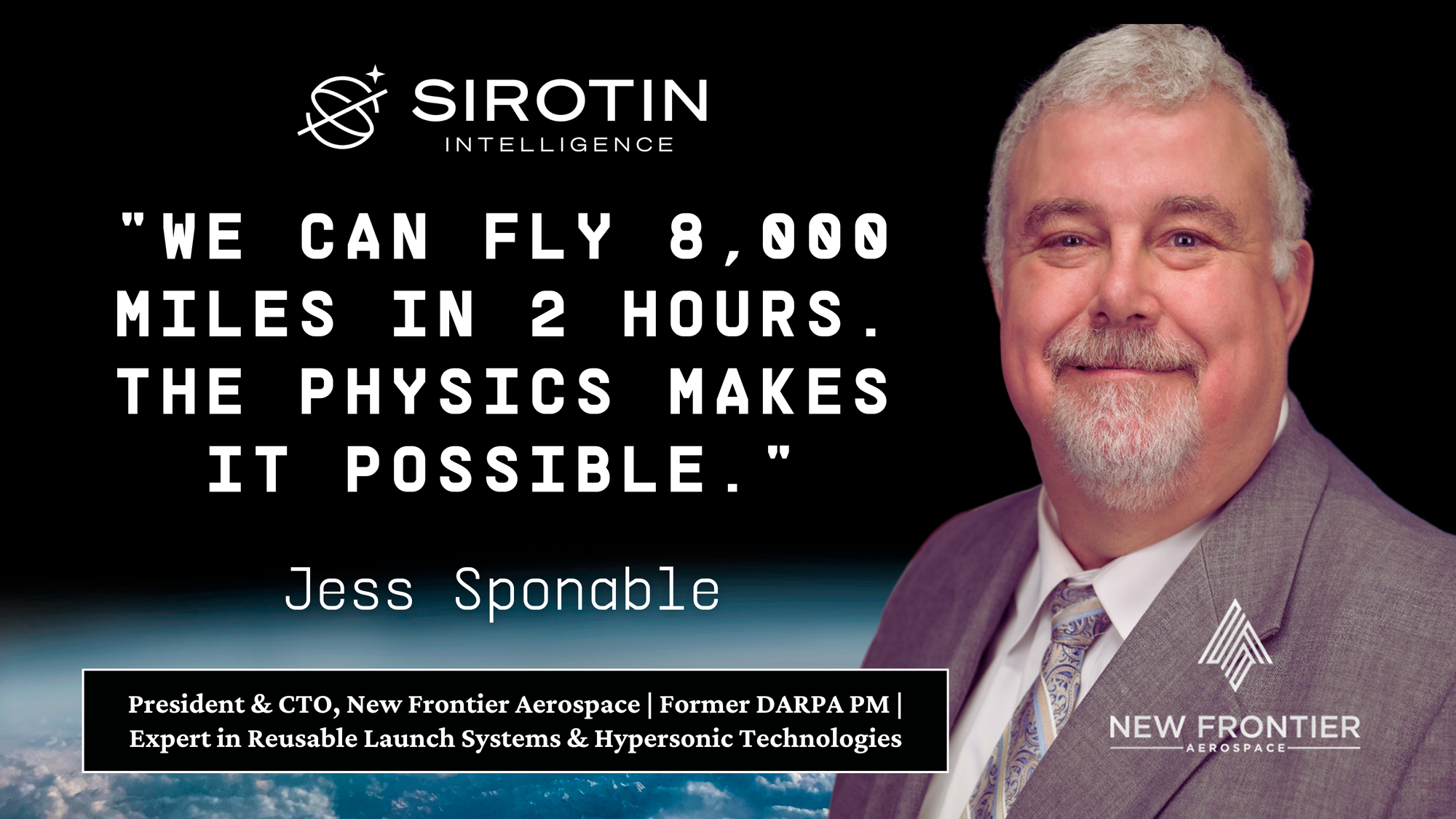
About Jess Sponable
Jess Sponable is the President and Chief Technology Officer for New Frontier Aerospace (NFA), Inc (www.nfaero.com). NFA is currently testing a new class of full flow staged combustion (FFSC) rocket engine with the reliability and safety features of jet engines. Key NFA products include advanced FFSC rocket engines, high ops tempo orbital maneuvering/vehicles, and high-speed point-to-point aircraft that fly at up to Mach 9 enabling two-hour flights to everywhere. With a wide-ranging background in industry and government, Jess has extensive experience developing space, hypersonic, and reusable space launch systems and technologies. In November 2017 he left the Defense Advanced Research Projects Agency where he served over two separate tours and seven years as a program manager. He led multiple space initiatives including the experimental spaceplane, high power solar electric propulsion, autonomous robotic arm, and solar thermal propulsion programs. With a combined budget of over $400 million and 50+ contracts, his efforts included technology maturation of satellite projects, power systems, solar cells, rocket engines, electric propulsion, and space launch. Prior to DARPA he spent over 30 years in the United States Air Force as both a military officer and civilian. His career supported diverse jobs ranging from Atlas launch operations at Vandenberg AFB to project management jobs developing and deploying the early Global Positioning System. Prior to the Space Shuttle Challenger accident, he was selected as an Air Force Manned Spaceflight Engineer and trained as a Space Shuttle payload specialist, then transitioned to support development of hypersonic flight at the National Aero-Space Plane program. Starting in 1991 he served in the Strategic Defense Initiative Organization managing multiple programs including the vertical take-off and landing Delta Clipper-Experimental (DC-X), which inspired many follow-on entrepreneurs. In 1994 he transitioned to the Air Force Research Laboratory supporting NASA’s follow-on initiatives DC-XA, X-33, X-34, and related technologies. In the Air Force he led or supported numerous projects and studies maturing hypersonic aircraft, orbit transfer vehicles, reusable space launch/military spaceplanes, and prompt global strike systems. Jess also spent several years in the entrepreneurial space launch sector working for Universal Space Lines and Pete Conrad, the Apollo 12 and Skylab commander. He has served on numerous national space transportation studies and panels. He is a graduate of the Air Force Academy with a bachelor’s degree in physics and holds advanced degrees in Astronautical Engineering and Systems Management. He is a graduate of the Defense Systems Management College.
Learn more:
New Frontier Aerospace
Read history story here.
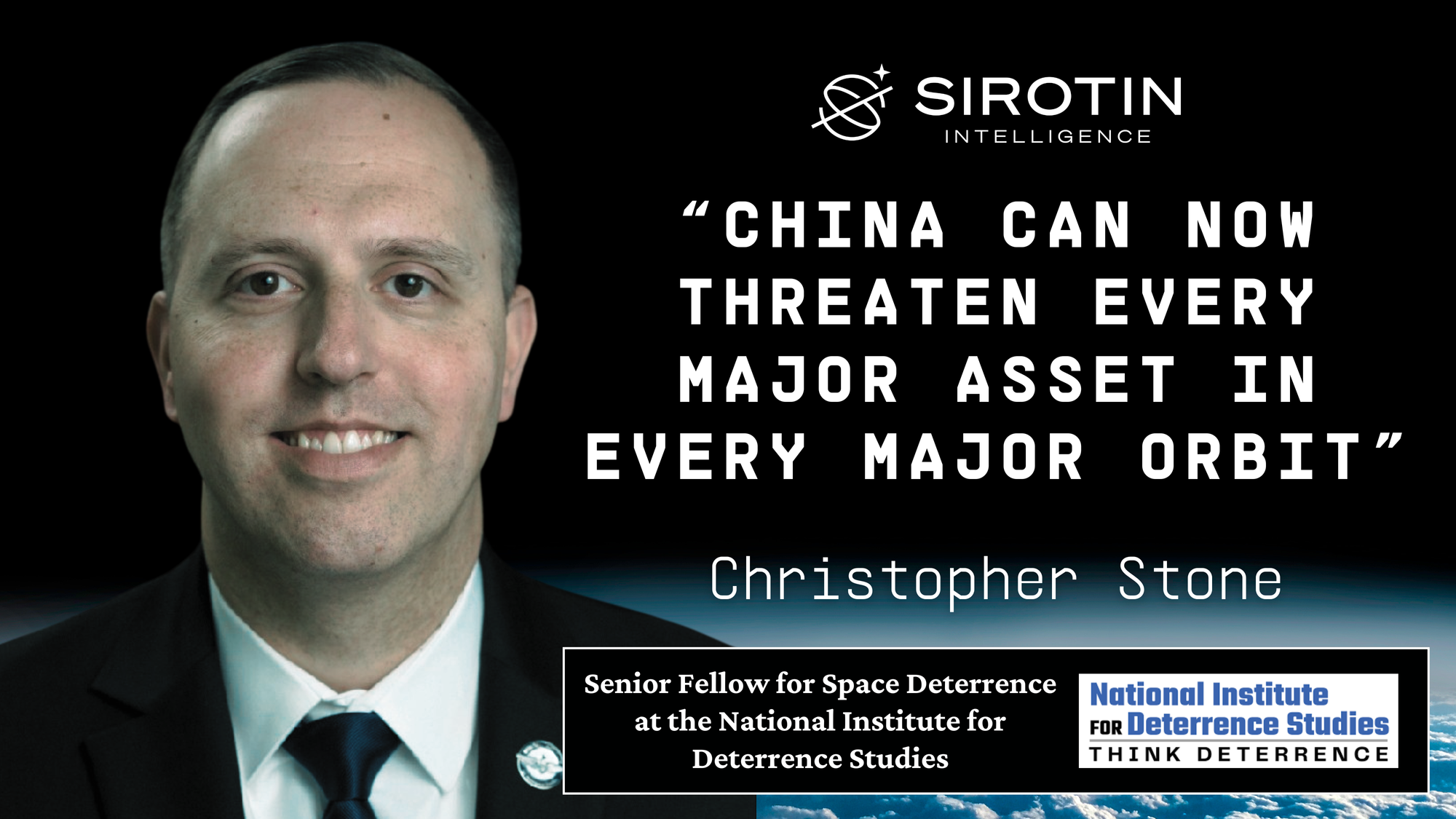
About Christopher Stone
Christopher Stone is a prominent figure in space policy, currently serving as a Senior Fellow for Space Deterrence at the National Institute for Deterrence Studies, where he focuses on research related to space warfare strategies and deterrence, particularly in the context of great power competition; he previously held a position as a Special Assistant to the Deputy Assistant Secretary of Defense for Space Policy at the Pentagon, giving him significant experience in the field of U.S. space policy development at a high level.
For more information, reach out to Chris at cstone@thinkdeterrence.com
Read history story here.
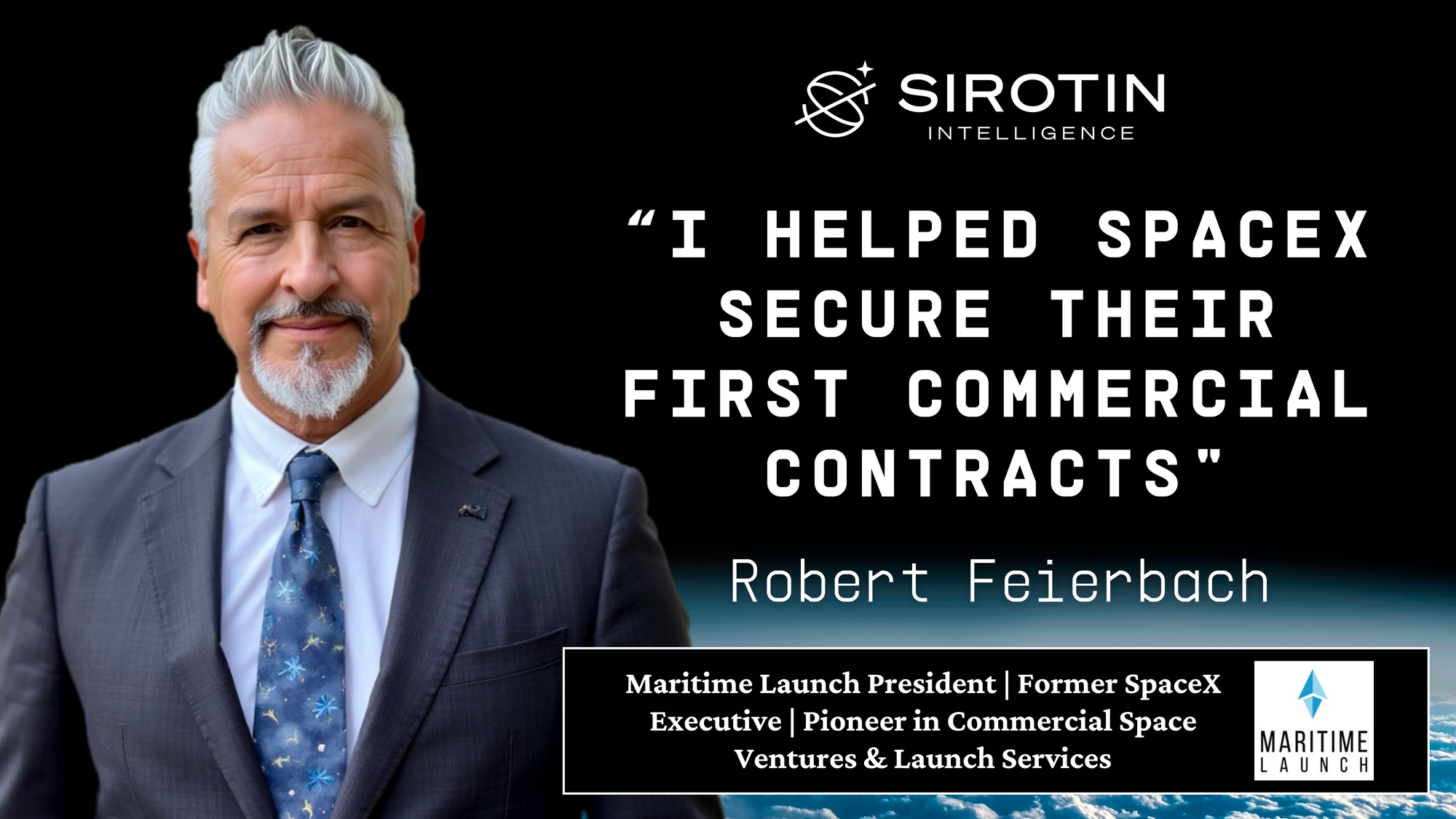
About Robert Feierbach
Robert Feierbach is President of Maritime Launch USA, Inc., the US division of Canada’s first and only commercial spaceport based in Nova Scotia, and Founder and CEO of 0-G Launch, a Washington-DC based company deploying a fleet of specially-modified commercial aircraft to provide high-precision microgravity flights and horizontal air-launch services to the fast-growing aerospace industry.
Mr. Feierbach, a well-recognized space industry expert, has an impressive track record in groundbreaking satellite technologies and services around the world, with leadership responsibility in companies generating $150 million - $2 billion in annual revenues. During the past 30 years, he held CEO/CCO/VP leadership positions at Echostar in the Netherlands, SES Global in Luxembourg, various Eutelsat / ViaSat partnerships in France, Italy and the USA, Hughes Network Systems’ International Division, Space Systems Loral (Maxar), and SpaceX, the private rocket company. Mr. Feierbach also led the commercial launch of the world's first Ka-Band spot-beam high-throughput satellite (HTS) for Eutelsat.
Mr. Feierbach holds a Bachelor’s degree in Computer Science Applications from the University of Utah, and an MBA from the Thunderbird School of Global Management. Robert speaks seven languages fluently and has lived and travelled across the Planet.
For more information, reach out to Chris at robert clarkebelt.com
Read history story here.
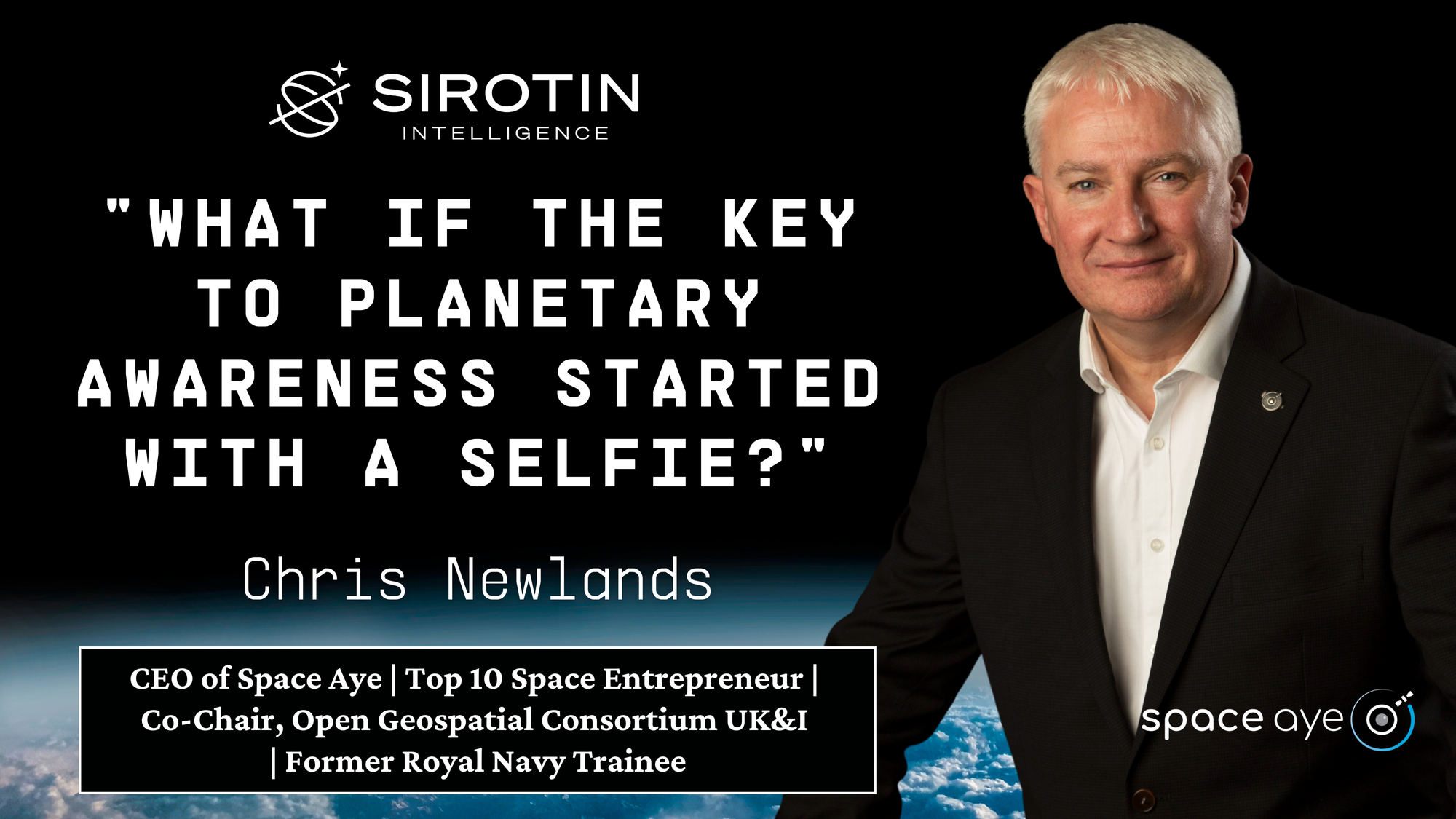
About Chris Newlands
Chris Newlands is one of the UK’s most connected entrepreneurs in the Technology and Space sectors. In December 2021, he was named in 4th position, in the world’s top 10 space entrepreneurs list, beaten only by Branson, Musk and Bezos. He was featured by Computing in their Top 100 IT Leaders “Definitive ranking of the UK’s foremost technology professionals 2024” list.
After serving in the Royal Navy, he carved out a successful career in financial services as a Chartered Financial Planner and NED. Over the last decade, Chris has become a true entrepreneur, creating Space Aye Limited, supporting his patented method that controls the merger between IoT data and real-time satellite imagery.
In 2021 the Scottish Government awarded him the title of Global Scot and became a Professor of Practice in entrepreneurship. He is an Affiliate Member of the Scotland International Space Advisory Committee, the Co-Chair of the Open Geospatial Consortium UK&I Forum and a Member of the World Geospatial Industry Council.
Currently lives near Glasgow, Scotland, also known as “Satellite City” with his wife and children.
To learn more about Space Aye’s groundbreaking technology, contact Chris Newlands at info@spaceaye.com or visit www.spaceaye.com.
Read his story here.
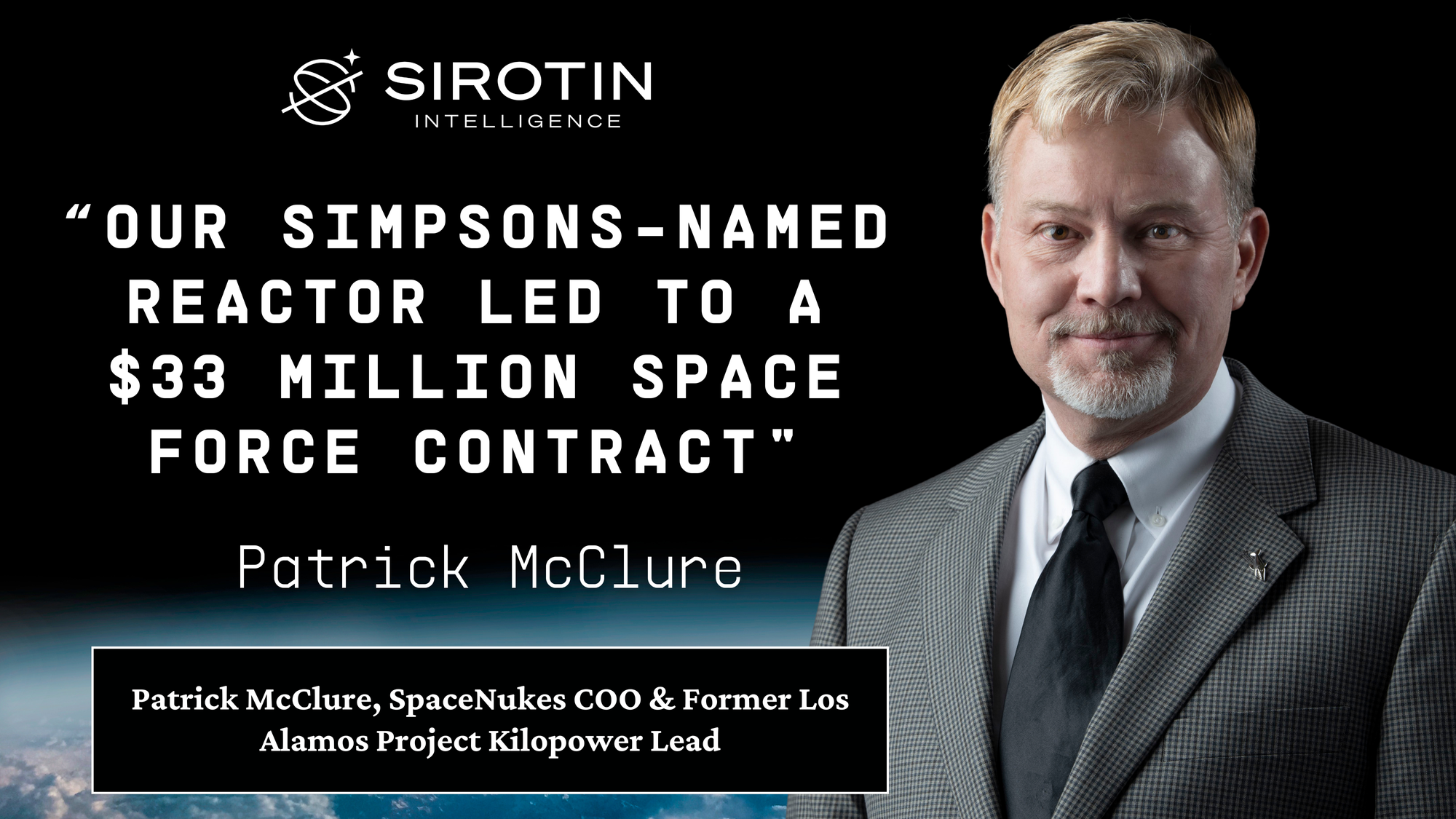
About Patrick McClure
Patrick McClure is the Chief Operations Officer (COO) for Space Nuclear Power Corporation (SpaceNukes) and a Nuclear Engineering Consultant with over 35 years of engineering experience in nuclear reactor design and nuclear safety analysis for large reactors, micro-reactors, and space reactors. His most important contribution to the field of nuclear engineering was being the Los Alamos National Laboratory lead for the Kilopower project. Kilopower was a project to design, build, and test the first novel reactor concept in decades. His accomplishments on Kilopower include the development of a novel process that allowed for the project to successfully navigate past substantial political and safety barriers.
Mr. McClure was a senior manager and researcher at LANL for 27 years and a senior engineer at SAIC for 6 years before helping to found SpaceNukes in 2019. He has a B.S. from the University of Oklahoma and an M.S. from the University of New Mexico.
For more information, get in touch with Patrick at mcclure@spacenukes.com
Read history story here.
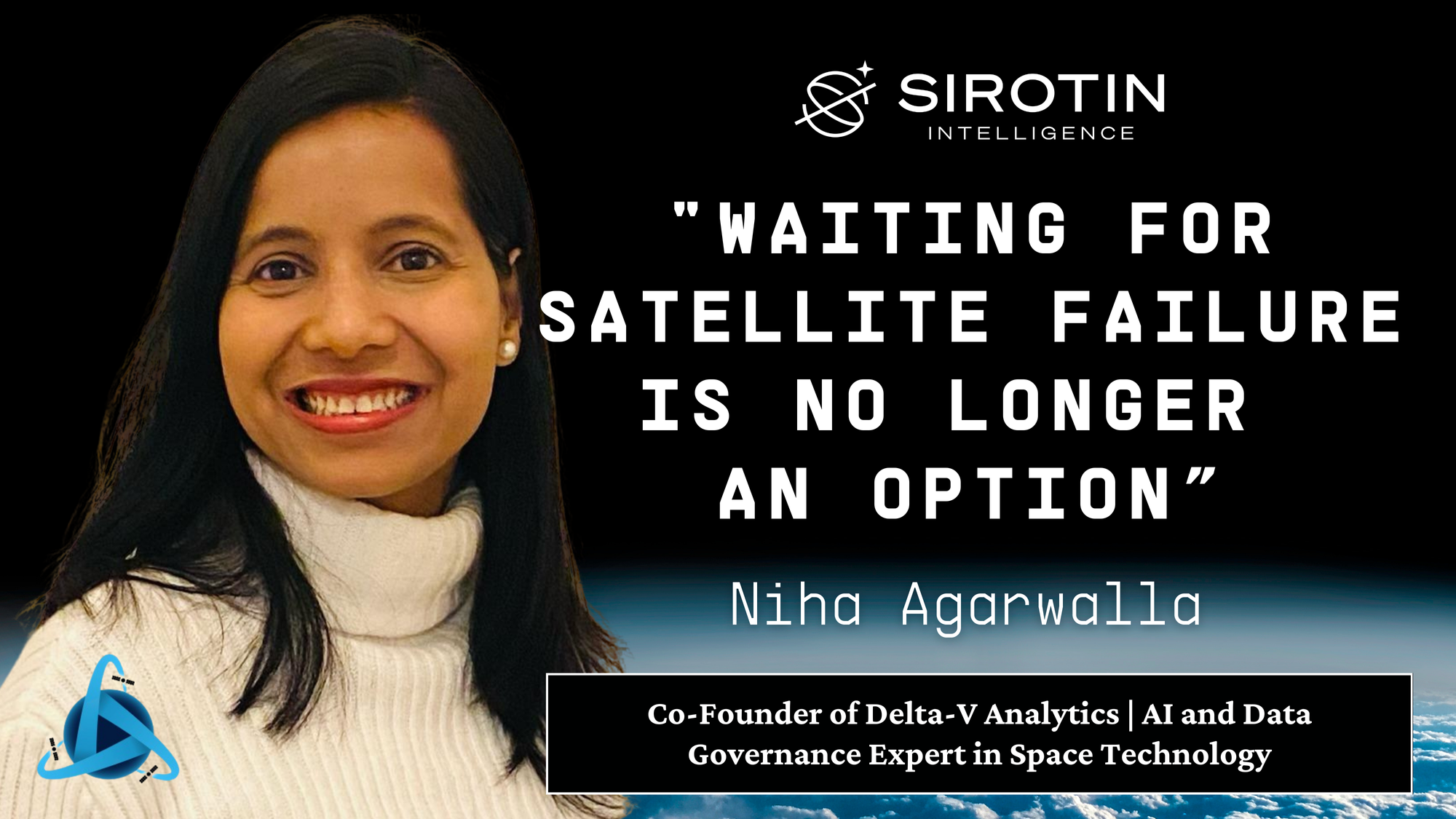
About Niha Agarwalla
Niha Agarwalla combines expertise in AI, computing, and data governance with a journey spanning regulated industries and cutting-edge technology. From leading data governance and AI initiatives in pharmaceuticals to driving operational optimization at Microsoft Xbox, she brings a unique cross-domain perspective to space technology.
At Delta-V Analytics, Niha applies her experience to develop AI-driven digital twins, real-time fault detection, and decision-support systems for satellites. Her background in regulated industries and tech innovation allows her to deliver scalable, efficient solutions tailored to the complex needs of satellite operations.
For more information, reach out to Niha at niha@deltavrobo.com
Read her story here.
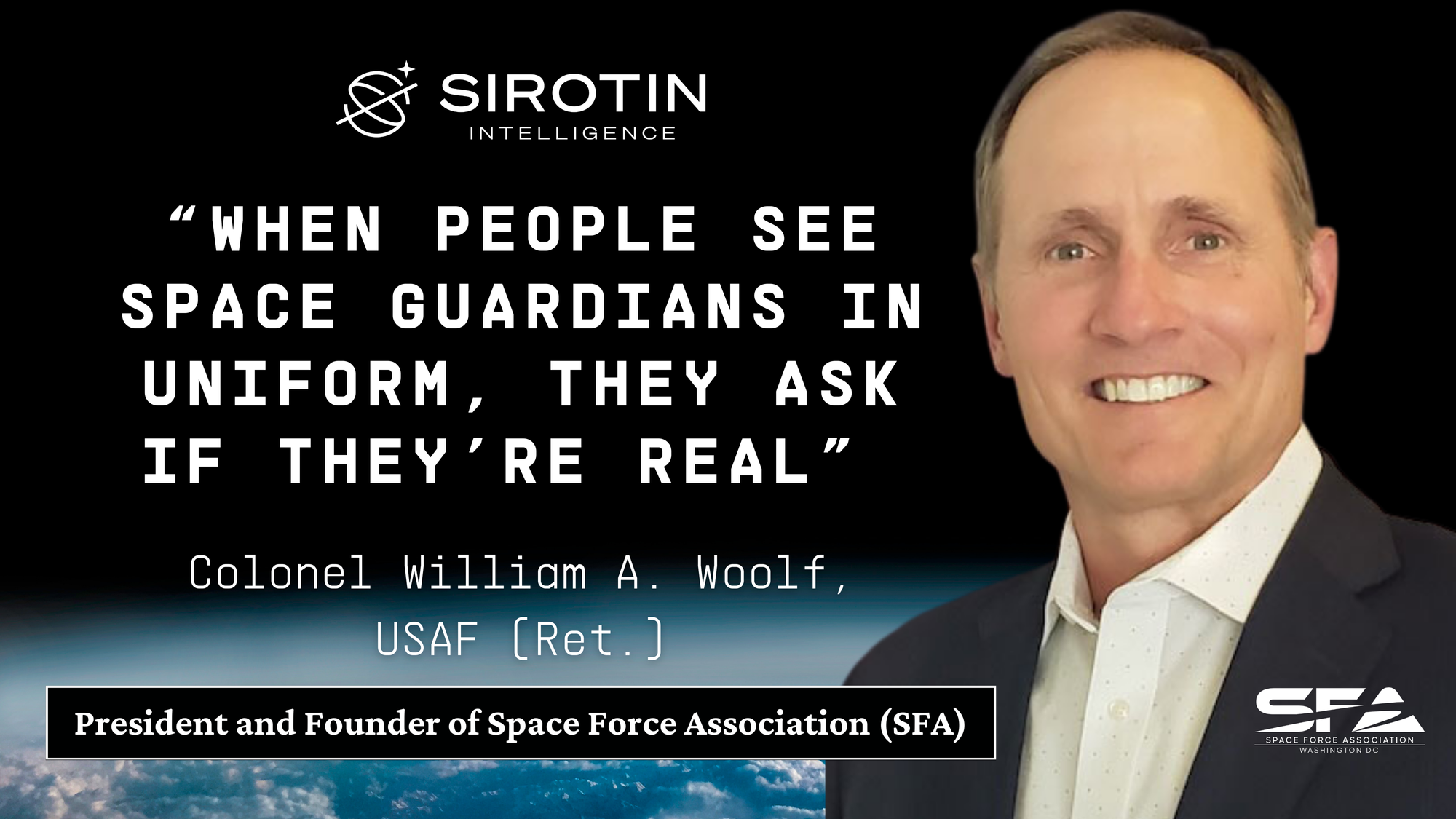
About Colonel William A. Woolf, USAF (Ret.)
Colonel William A. Woolf, USAF (Ret.), is the President and Founder of the Space Force Association (SFA). He served over 24 years in the U.S. Air Force, retiring in 2018. Throughout his career, Col Woolf was a space and nuclear officer, holding key positions in operations, staff leadership, and technical program management. He is a graduate of the United States Air Force Weapons School.
For more information, get in touch with Bill at bill.woolf@ussfa.org
Read his story here.
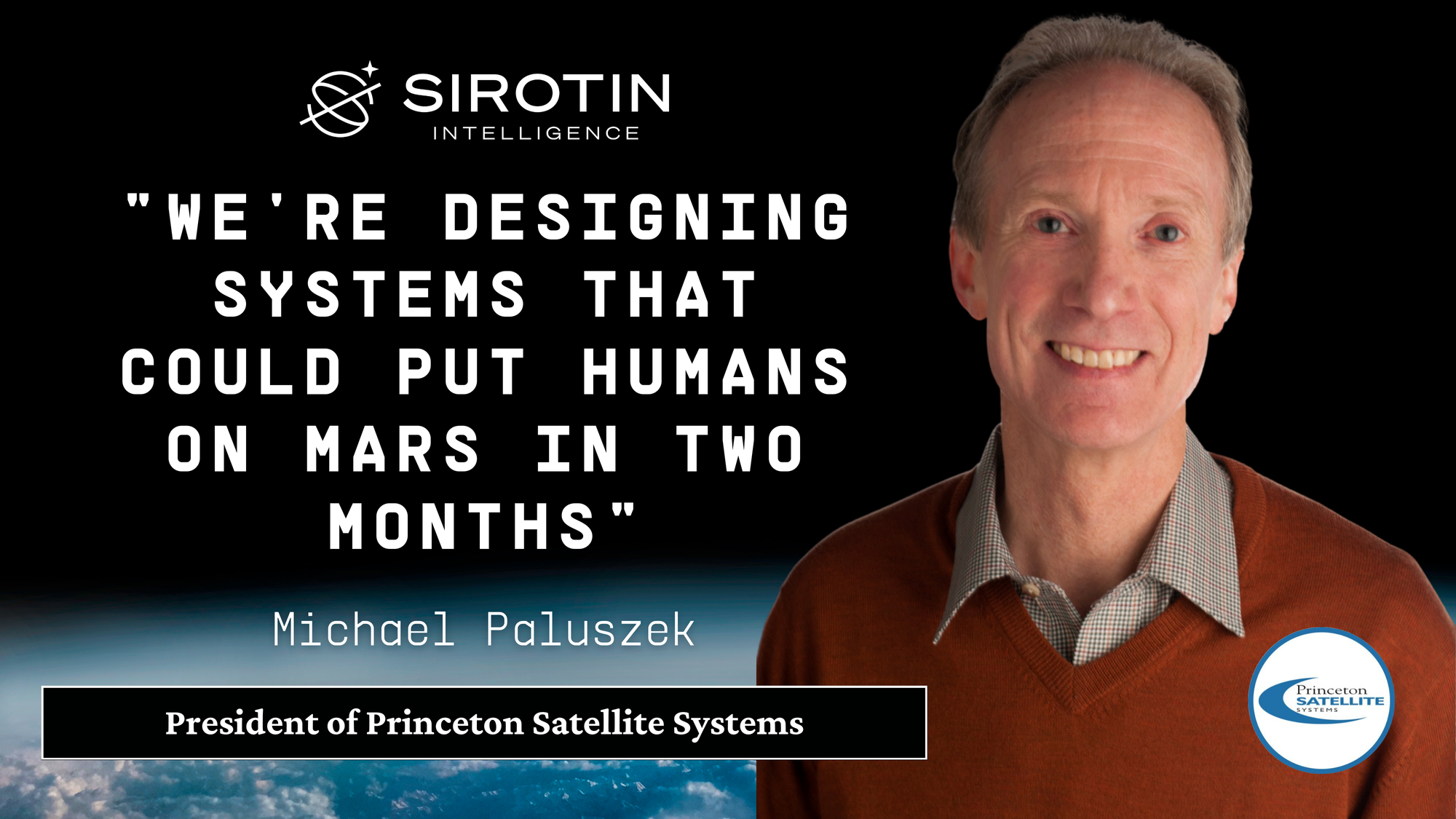
About Michael Paluszek
Mr. Paluszek is President of Princeton Satellite Systems, which he founded in 1992. He is designing an advanced liquid ascent stage for Mars sample return and other missions. He is also on a two-stage horizontal takeoff launch vehicle using a hydrogen-fueled ramjet powered first stage. He was PI on the ARPA-E OPEN grant to develop a compact nuclear fusion reactor based on the Princeton Field Reversed Configuration concept. He was also PI on the ARPA-E GAMOW project to develop power electronics for the fusion industry. He was PI on a project to design a closed-loop Brayton Cycle heat engine for space applications.
Before founding PSS, he worked at GE Astro Space in East Windsor, NJ. At GE he designed or led the design of several attitude control systems including GPS IIR, Inmarsat 3, and GGS Polar platform. He also was an ACS analyst on over a dozen satellite launches, including the GSTAR III recovery. Before joining GE, he worked at the Draper Laboratory and MIT.
For more information, get in touch with Michael at map@psatellite.com
Read his story here.
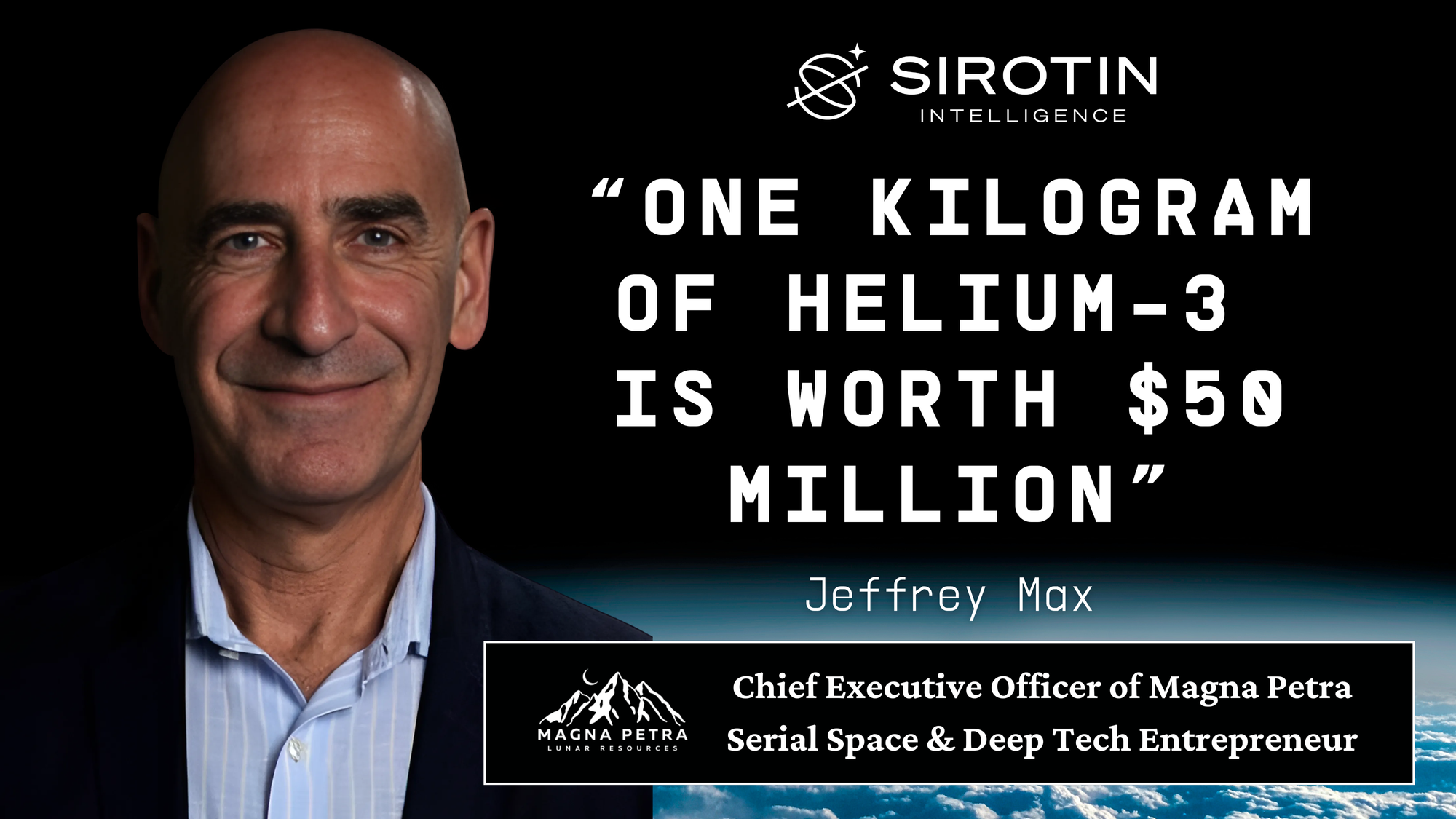
About Jeffrey Max
Jeffrey Max is a serial technology & aerospace entrepreneur, investor and executive mentor. Having raised over $850m in growth capital, with several 9-figure exits, Jeff excels at leading fast-scaling hypergrowth companies, backing innovative and resilient engineering teams. With experience leading both private and public companies, he is a “full lifecycle” CEO, integrating decades of operational and execution experience with deep-tech and aerospace innovation.
For more information, reach out to Jeffrey at jeff@magnapatra.com
Read his story here.
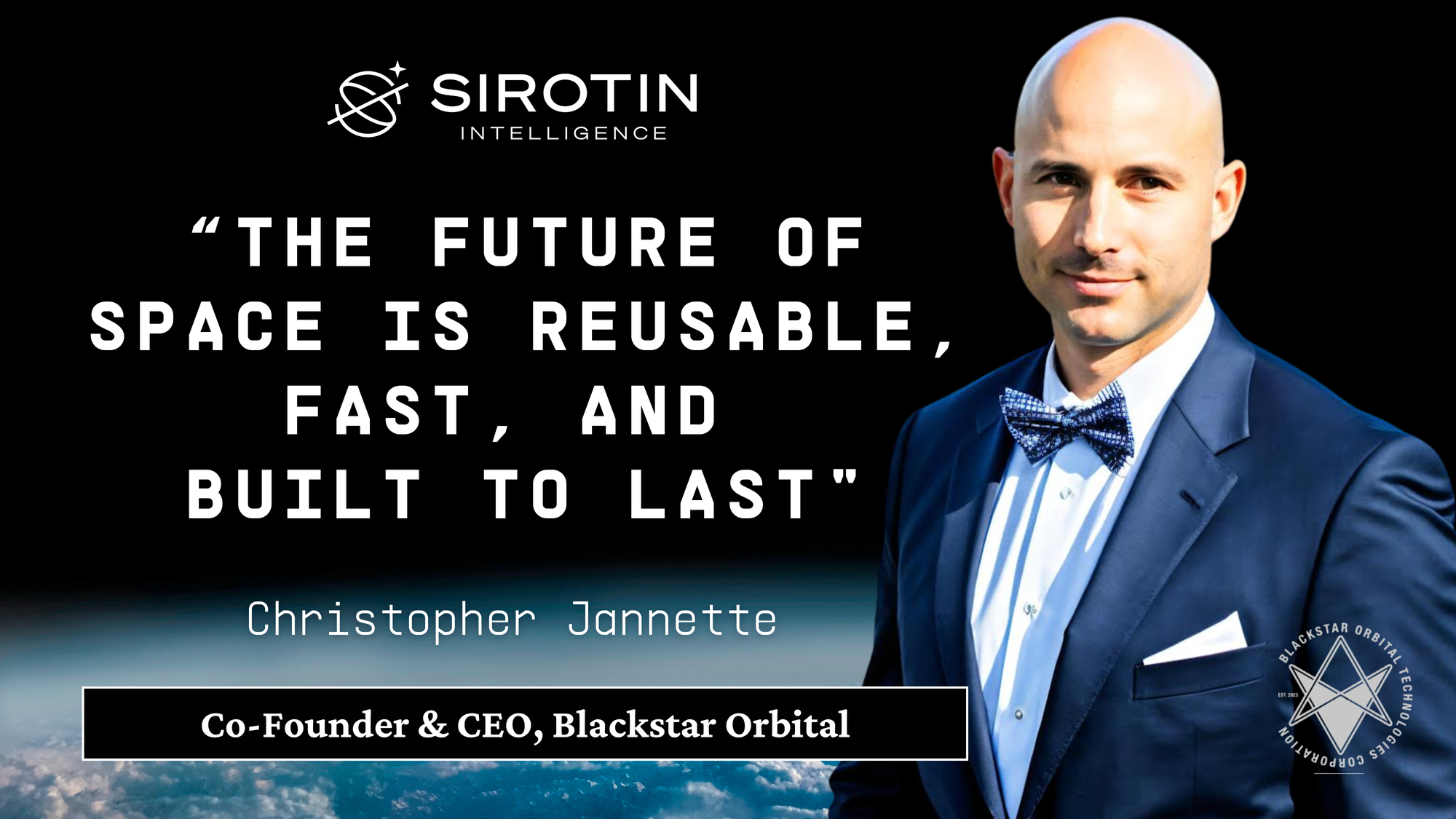
About Christopher Jannette
Christopher "CJ" Jannette is a systems engineer, entrepreneur, and defense technology expert, currently serving as the President and CEO of BlackStar Orbital. With a background in aerospace engineering, spacecraft servicing and launch operations. As Co-Founder and CEO of BlackStar Orbital he has been pivotal in bringing a new standard of modular, reusable satellite platforms to the aerospace industry.
Prior to founding BlackStar, CJ played a pivotal role in key aerospace programs, contributing to missions such as Falcon Heavy Demo-1, Artemis 1, SpaceX Dragon for Crew and CRS missions, Axiom, Inspiration4, lunar landers such as Astrobotic Peregrine, and Intuitive Machines IM-1. His experience with SpaceX, NASA KPLSS II, United Frontiers and Ripple Aerospace included work on thermal protection systems for Starship and the first open water orientation of a launch vehicle without a launch pad since the cold war.
A veteran and defense technology SME, CJ has received multiple commendations, including the USAF Meritorious Unit Award, Global War on Terrorism medals, and the Humanitarian Service Medal for his contributions to the Fukushima disaster response in 2011. His leadership at BlackStar Orbital is focused on advancing space sustainability, hypersonic vehicle development, and autonomous space operations, positioning the company as a key player in the evolving space economy. Outside of Blackstar, Chris is an independent consultant for VC firms and maintains console certifications as consultant with United Paradyne Corporation where he continues to contribute to spaceflight launch operations.
Blackstar Orbital envisions a future where thousands of hypersonic satellites are operating in and returning from Low Earth Orbit, redefining the future of spaceflight.
For more information, contact Christopher at ceo@spacedrone.io
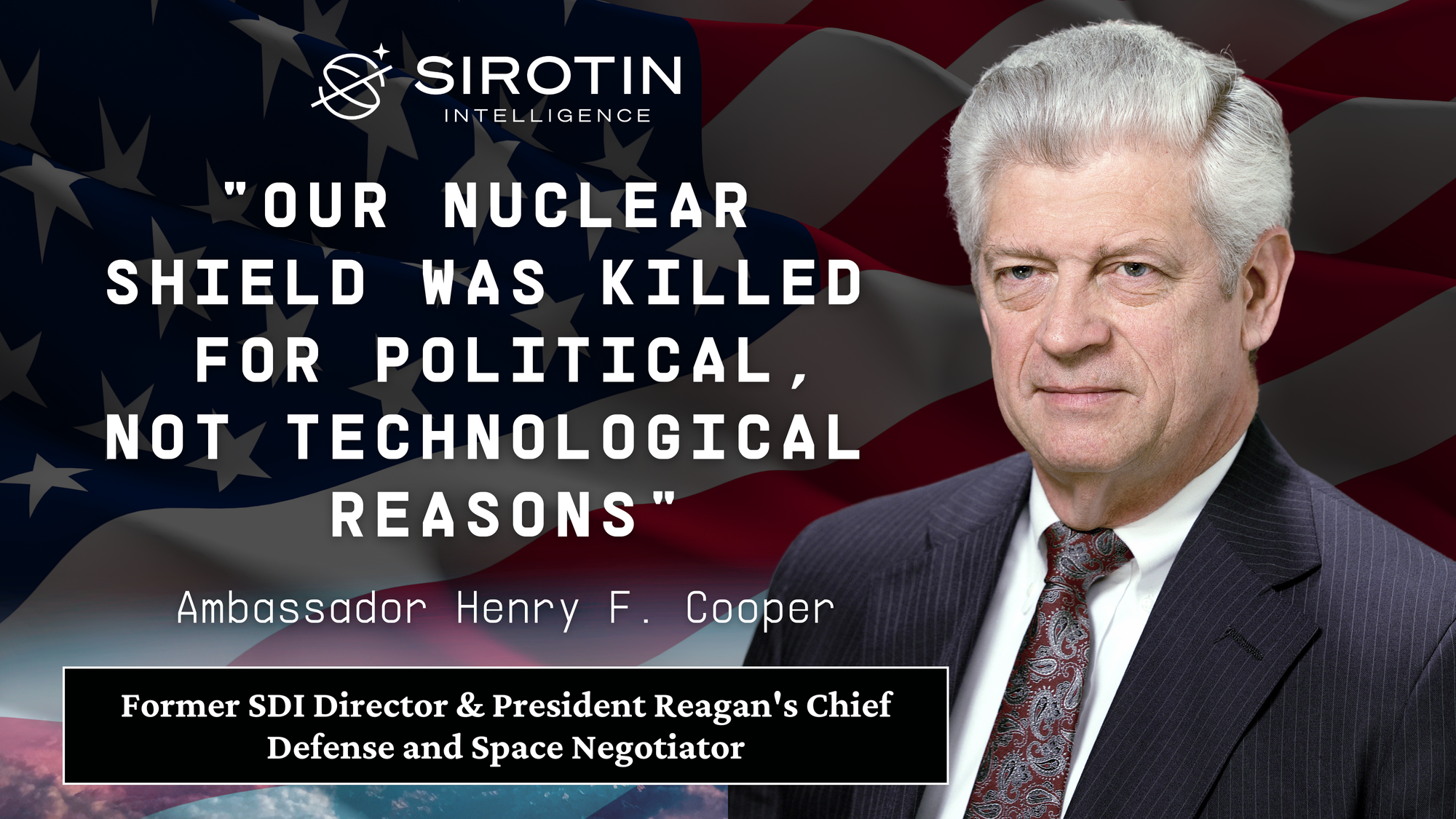
About Ambassador Henry F. Cooper
Ambassador Henry F. Cooper, a Clemson engineering graduate with a PhD from NYU, served in the US Air Force, was Science Advisor to the Air Force Weapons Laboratory, Deputy Assistant Air Force Secretary for Strategic and Space Systems, Assistant Director for Strategic Systems of the Arms Control and Disarmament Agency, President Reagan’s Negotiator for Defense and Space Systems with the Soviet Union and President George H.W. Bush’s Strategic Defense Initiative (SDI) Director. In the private sector he was a Clemson Engineering Mechanics Instructor, a member of the technical staff of Bell Telephone Laboratories and R&D Associates, Senior Vice President of Jaycor, a Visiting Fellow of the Heritage Foundation, Chairman of High Frontier and Chairman of Applied Research Associates.
Read his story here.
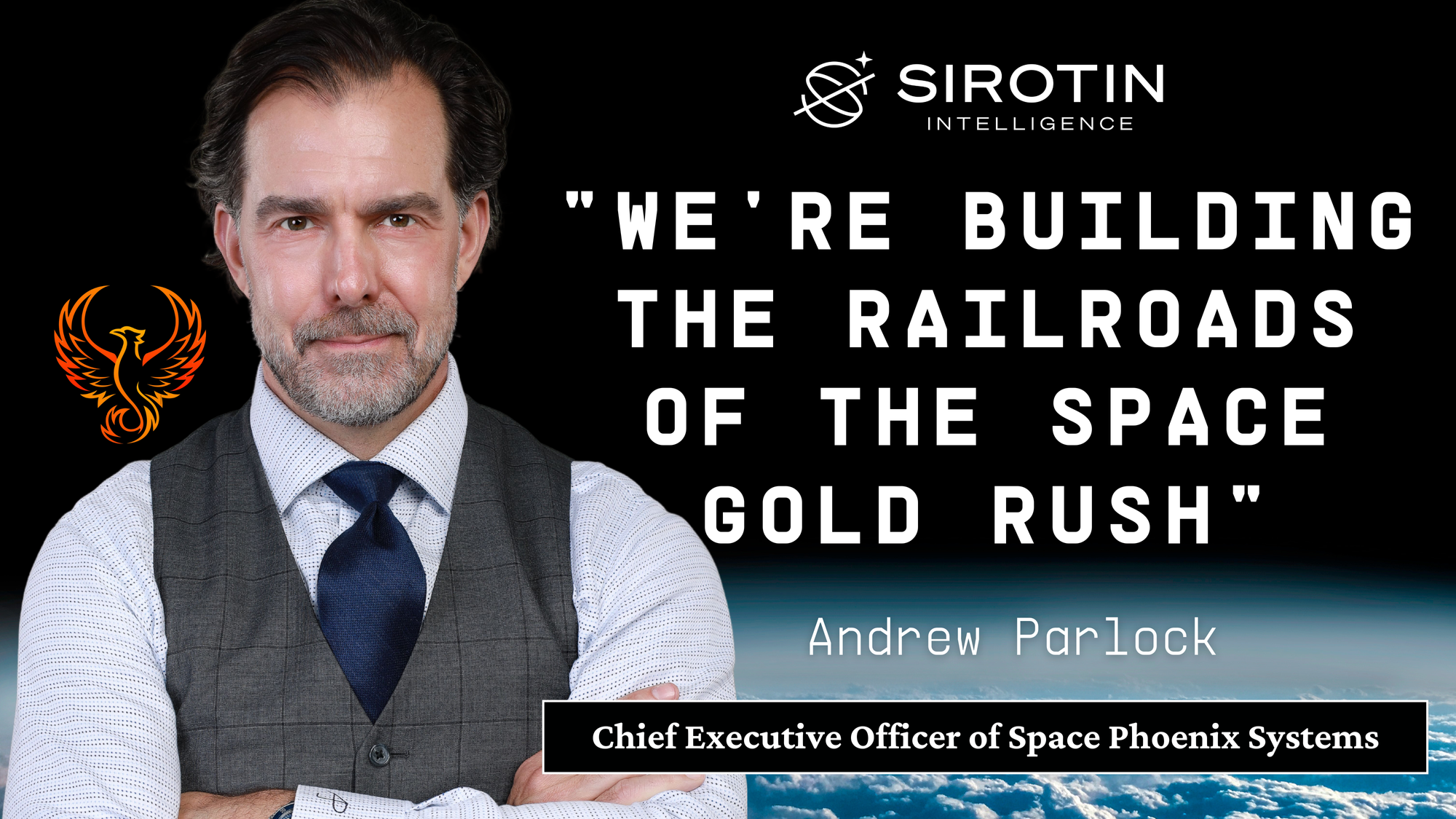
About Andrew Parlock
Andrew Parlock is a distinguished leader in the global space industry, combining technical expertise with strategic vision. With over 25 years of experience in domestic and international markets, a B.S. in Aerospace Engineering, and an MBA, he has a proven track record of delivering complex solutions across government, defense, and commercial sectors. His ability to lead cross-functional teams, drive innovation, and identify new opportunities has been central to his success. His international experience is invaluable in his current role, where he navigates the evolving needs of the global space industry, national security, and emerging markets.
As Founder and CEO of Space Phoenix Systems, Andrew applies his leadership skills and deep industry knowledge to revolutionize space logistics. Under his guidance, Space Phoenix is transforming how organizations launch, manage, and retrieve payloads, technology, and products from space, enhancing efficiency and accessibility. His vision is to create solutions that address critical challenges, advancing space exploration and commercialization.
Previously, Andrew served as Managing Director of Space Forge’s U.S. expansion and Director of New Business for ICEYE US, where he successfully established and expanded market presence. At Space Forge, he led U.S. market entry in in-space manufacturing, advanced materials, and microgravity research, focusing on supermaterials for societal challenges. At ICEYE, he worked with the U.S. Department of Defense, intelligence community, and strategic partners to support national security efforts.
Earlier, as Senior Manager for Space Resiliency and Advanced Programs at Northrop Grumman, Andrew helped develop advanced space-based defense technologies and played a key role in Northrop’s Emerging Technology Innovation Lab, driving innovation and fostering diverse talent through non-traditional hiring.
A New Jersey native and West Virginia University Mountaineer, Andrew earned his MBA from Michigan State University’s Eli Broad College of Business. Now based in Baltimore with his family, he mentors emerging industry leaders and advances space technologies. He serves on the Regional Advisory Board of NPower Inc., a national technology nonprofit, and received the Greater Baltimore Committee’s Bridging the Gap Achievement Award for mentoring young talent—a lifelong passion.
Read his story here.
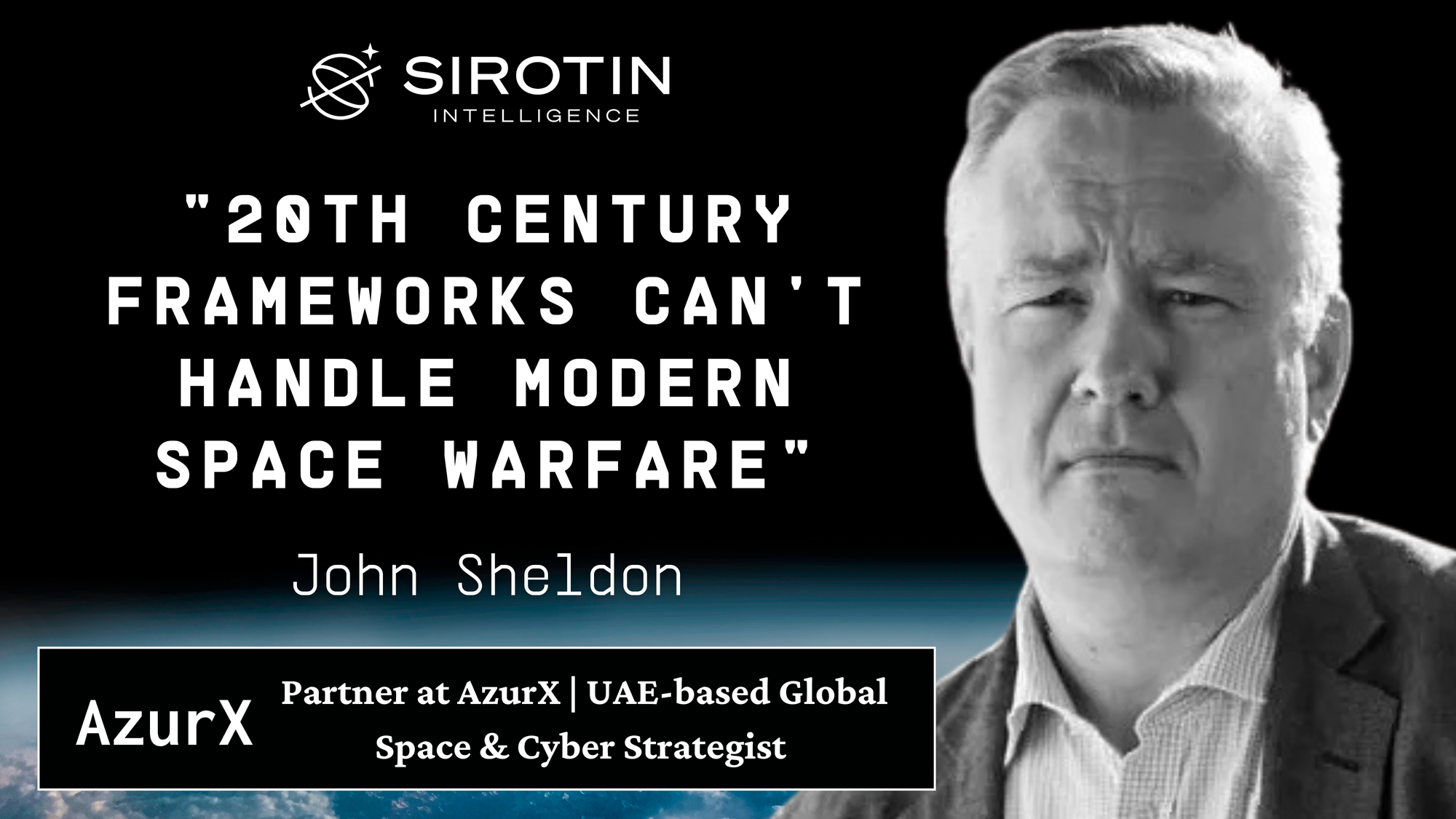
About John Sheldon
John B. Sheldon, Ph.D., has over 25 years experience in the space, cyberspace, and defence sectors in and outside of the Middle East, having worked for both commercial and government entities in the UK, United States, Europe, Japan, and the United Arab Emirates.
As a Partner at AzurX, John’s focus is space, cyber, Web3, and other strategic technologies and their critical roles in developing economies and accessing untapped human potential. From October 2021 through to March 2022 John was seconded to the Saudi Space Commission where he drafted the Saudi space policy and was part of the team that audited the Saudi space strategy. From April 2023 to October 2024 John closely assisted senior leadership at EDGE Group PJSC in the UAE in developing the company’s space strategy and building out its space business known as FADA.
John has advised numerous governments on space and cyber issues, to include governments in the United States, United Kingdom, Japan, Saudi Arabia, United Arab Emirates, and Poland. John has also published extensively on strategic matters, to include space and cyberspace policy and strategy, in various trade and scholarly publications.
John holds BA (Honours) and MA degrees from the University of Hull, United Kingdom, and a Ph.D. in International Politics and Strategic Studies from the University of Reading, United Kingdom. Originally from the United Kingdom, John has lived for many years in Germany, the United States, and has lived and worked in the United Arab Emirates since 2016.
Read his story here.
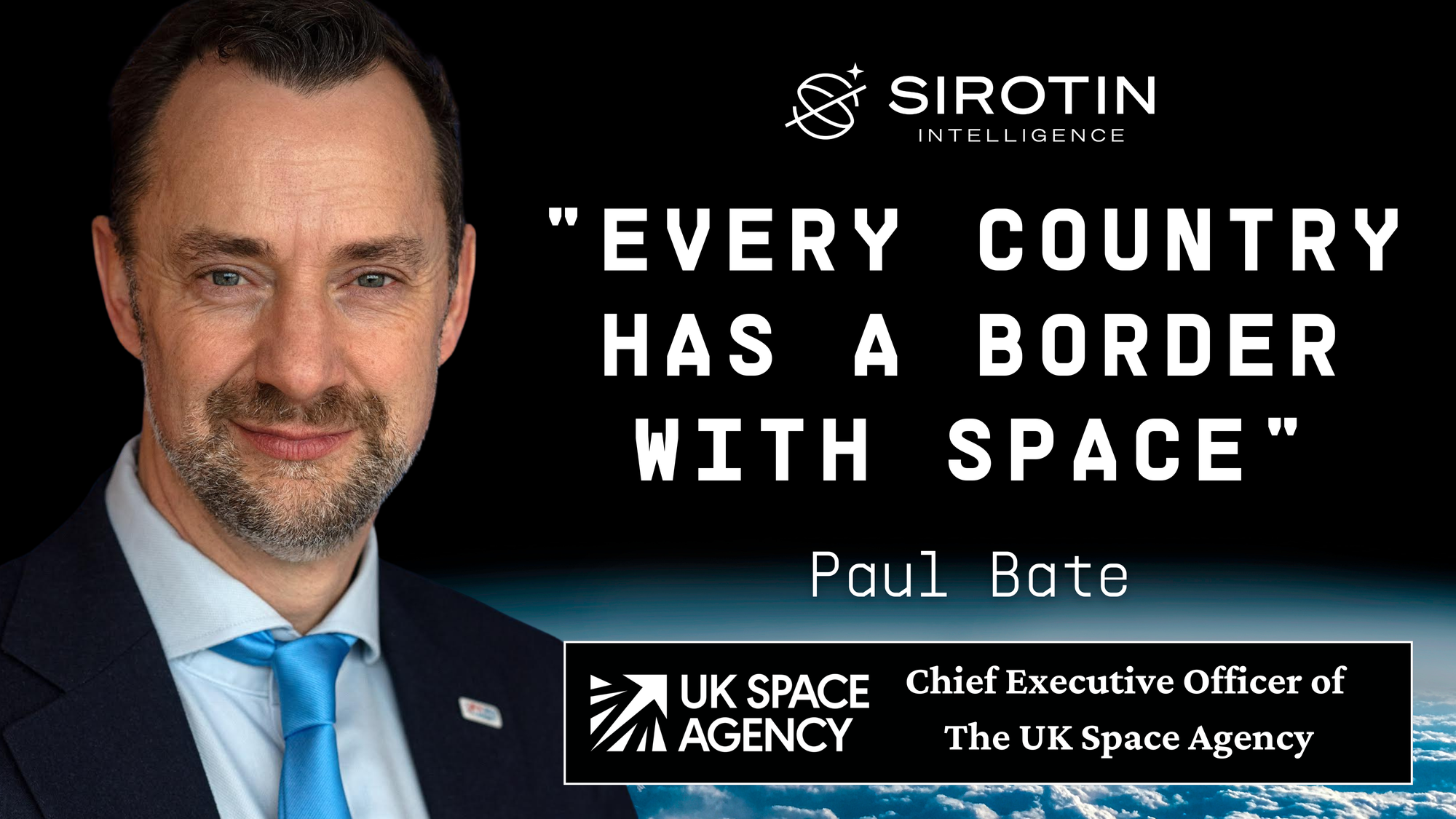
About Paul Bate
Paul Bate has been CEO of the UK Space Agency since September 2021. He leads a team of more than 300 who provide the R&D funding to use space to increase prosperity across the world, protect the planet, and to understand the universe.
Prior to space, Paul ran global sales at Babylon Health, which floated on the New York Stock Exchange in 2021, and built a consultancy business.
Paul was David Cameron’s senior health adviser in Downing Street and led on health targets and finances in Tony Blair’s Delivery Unit. Paul holds a PhD in Particle Physics.
Read his interview here.
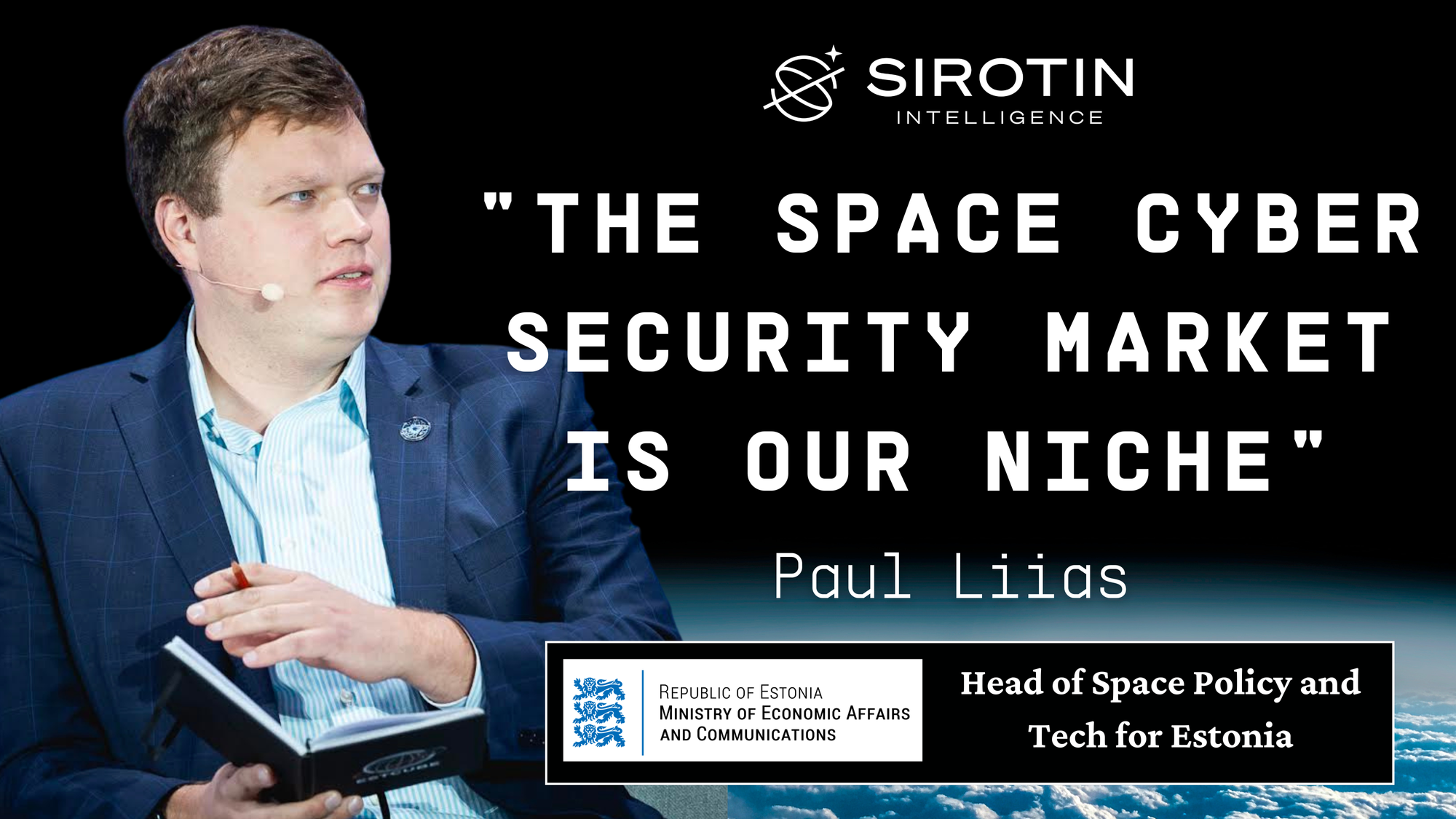
About Paul Liias
Paul Liias is the Head of Space at the Ministry of Economic Affairs and Communication for Estonia. In this role, Paul leads the Estonian Delegation to the European Space Agency (ESA) and oversees Estonia's participation in the EU Space Programme. He is the architect behind the Estonian Space Policy and Program 2020-2027. Currently, Paul is focused on developing national space legislation and a major space strategy update for mid 2025.
Since July 2023, Paul has been the elected Chair of the ESA Administrative and Finance Committee (AFC), where he deals with administrative, staff, financial, and legal related matters. In April 2025 Paul was elected as the Chair of the Administrative Board for the EU Agency for the Space Programme (EUSPA), his two year term will begin on the 18th of June 2025.
Paul's journey in the space sector began in 2008 with his involvement in the first Estonian satellite project, ESTCube-1, where he led the development of mechanical systems. Following the successful launch in 2013, Paul transitioned to entrepreneurship in the space sector until 2016, when he joined the ministry.
Read his interview here.
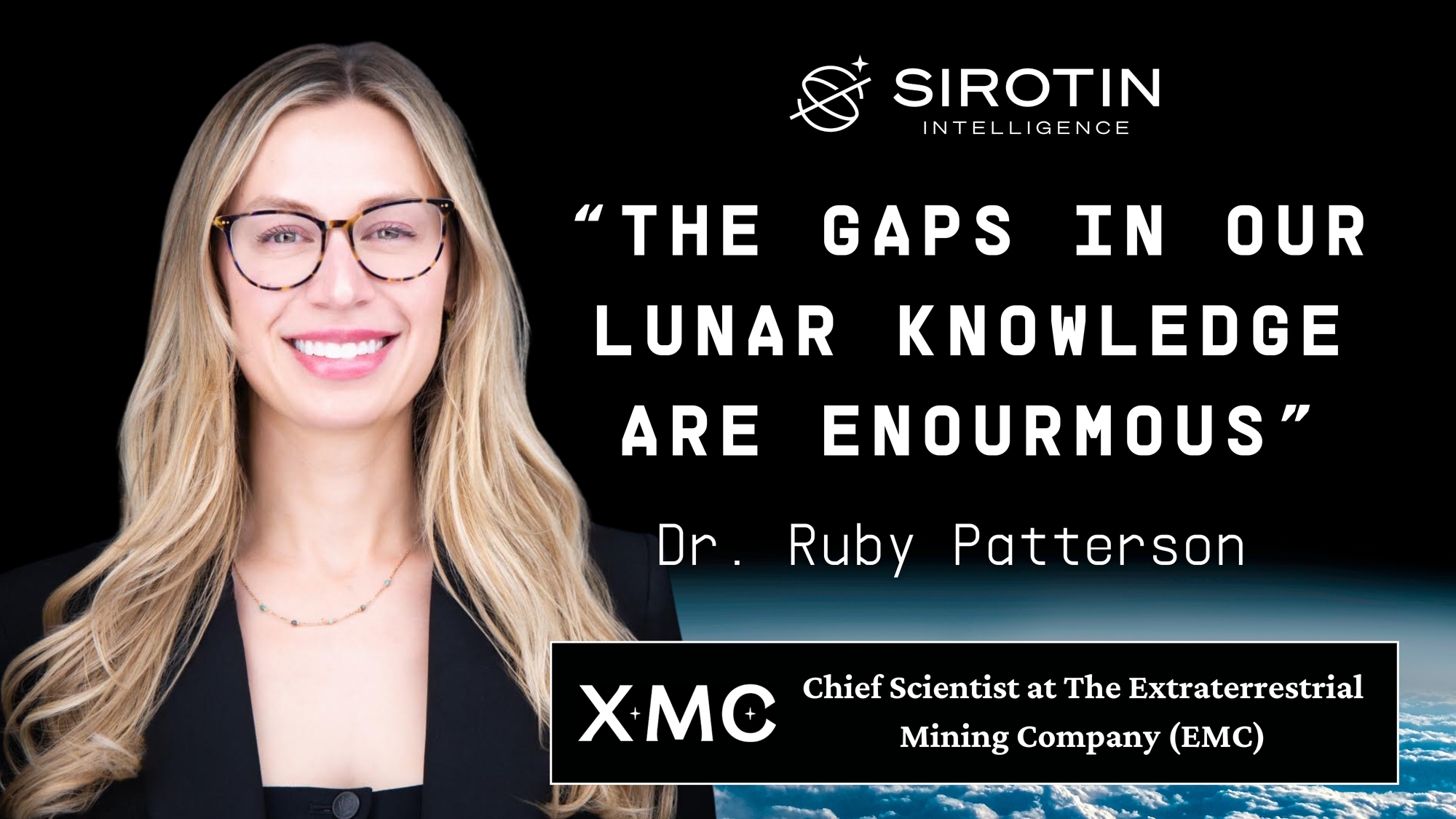
About Dr. Ruby Patterson
Dr. Ruby V. Patterson serves as Chief Science Officer at The Extraterrestrial Mining Company (XMC), where she leads groundbreaking initiatives in lunar helium-3 mining operations. Recently honored as the 2024 Emerging Space Leader by the International Astronautical Federation, Dr. Patterson brings a unique combination of academic excellence and practical expertise to the emerging field of space resource utilization.
After completing her Bachelor of Science in Geology from the University of Texas at San Antonio in 2018 and Master of Science from the University of Arkansas in 2020, Dr. Patterson earned her Ph.D. in Geology from the University of Houston in 2024. Her rapid ascent in the field of planetary geology began at NASA’s Johnson Space Center, where she served as a Mars Geochemist. In this role, she made significant contributions to ongoing Mars science operations as a collaborator with the Curiosity rover science team, while simultaneously advancing lunar exploration through the development and testing of lunar regolith simulants.
Dr. Patterson’s research has fundamentally shaped our approach to lunar exploration. Her publication “Lithologies and Chronologic Opportunities of Materials to Be Returned From the Artemis Exploration Zone” established the framework that currently guides the Artemis III geology team’s strategic planning for sample return from the South Pole Aitken Basin. She has further expanded our understanding of planetary geology through her leadership of an all-female research expedition to Iceland’s Western Volcanic Zone, where her team investigated silica generation and preservation in basaltic environments – research that has direct implications for interpreting robotic geological data from Mars.
In her role as a space industry consultant in the Greater Los Angeles area, Dr. Patterson advised numerous startup companies on lunar surface conditions and authored comprehensive industry reports for her clients. She later served as the United States Lead of Research and Development for the Iceland Space Agency, where she fostered international collaboration in space exploration and extreme environmental analog studies.
Her commitment to advancing space exploration extends to policy advocacy, where she has engaged with members of Congress on Capitol Hill to advocate for increased NASA funding, particularly for critical missions like the VIPER rover.
Currently, at The Extraterrestrial Mining Company, Dr. Patterson is spearheading the prospecting and resource assessment efforts of helium-3 from lunar regolith, work that will revolutionize energy production and the quantum computing industry on Earth. Her leadership extends beyond her technical roles: she is a board member of the International Lunar Resource Prospecting Consortium and serves as founder and chair of an all-female mastermind group dedicated to advancing women in the space industry.
For more information, reach out to Ruby at ruby.patterson@xmcspace.com
LinkedIn: https://www.linkedin.com/in/rubypatterson/
Website: https://www.xmcspace.com/
Instagram: https://www.instagram.com/rubythespacegeologist/
Read her full interview here.

About Lt. Col. Thomas Nix
Lieutenant Colonel Thomas Nix, United States Space Force, JETSON Project Lead and Senior Military Advisor, Spacecraft Technology Division (RVS), Air Force Research Laboratory( AFRL), Kirtland AFB, New Mexico. As Senior Military Advisor, Lieutenant Colonel Nix provides leadership and direction for over 120 personnel (24 Military, 100 Civilians) conducting world class research across multiple portfolios to advance spacecraft technologies and oversight of a $125M annual budget across 33 technology programs. As JETSON, program lead, Lt Col Nix provides oversight for $70M program advancing multiple technical areas including heat dissipation, power conversion, and nuclear power systems.
Lt Col Nix graduated from the United States Air Force Academy and earned his commission in 2002. He began his career at Specialized Undergraduate Pilot Training (SUPT) at Laughlin AFB, TX as a student pilot. Assignments following that include at Materials Directorate and Headquarters, Air Force Research Laboratory, Wright-Patterson Air Force Base where he worked on advanced ceramics, polymers, and multiple aircraft material upgrades for F-22, JSF, C-17, RQ-4, and A-10. He also was the AFRL program lead for rapid runway expansion testing, USAF Body/Vehicle Armor Subject Matter Expert, and the Executive Officer for the AFRL Commander during his tenure.
Following that assignment, Lt Col Nix transferred to Vandenberg AFB, CA where he worked on the initial Minotaur IV rocket launch along with 12 additional Minotaur I/IV launches, and Group and Wing staff rotations, Then, he transferred to Los Angeles AFB, CA; where he was the Requirements Chief for the Global Positioning System (GPS) enterprise, balancing 4 ACAT- I program requirement changes and leading a $255M Systems Engineering support source selection. Following that assignment, he was selected as technical lead for the Multi-Int Fusion Processing System and Sentient Operations Branch Chief at the National Reconnaissance Office in the Ground Enterprise Division. There he oversaw the development and execution of $238M/year budget and lead the transformation of Intelligence Community processing to the cloud and the adoption of Machine Learning and Artificial Intelligence to enhance the National Overhead Systems Future Ground Architecture. Later, he transferred to Kirtland AFB, NM to lead the advanced analytics division at the Air Force Inspection Agency as well as deploying to Camp Arifjan, Kuwait as the Inspector General and Chief of External Oversight for Combined Joint Task Force-Operation Inherent Resolve before transferring to his current assignment in AFRL.
Read his full interview here.

About Doug Ellsworth
Douglas Ellsworth serves as a Senior Fellow at the Center for Security Policy and Co-Director of the Center-sponsored Secure the Grid (STG) Coalition—an ad hoc group of policy, energy, and national security experts, legislators, and industry insiders dedicated to strengthening the resilience of America's electrical grid.
The Secure-the-Grid Coalition and its parent, the Center for Security Policy will never endorse any vendor’s or manufacturer’s offerings in return for monies or anything of other value as compensation or payment for inclusion or promotion in anything we publish. All solution recommendations are based solely upon merit. The Secure the Grid Coalition and the Center for Security Policy are public benefit organizations and are wholly donor-supported.
Through the support of the Center for Security Policy, the STG Coalition aims to raise awareness about the national security threat of grid vulnerability and encourage the steps needed to neutralize it. Ellsworth's recent work includes drafting formal comments for the Secretary of Energy Advisory Board (SEAB) and formal motions to the Federal Energy Regulatory Commission (FERC), including a notable "Petition for Rulemaking" that was solely responsible for opening federal docket number EL23-69, which addressed the insufficiency of physical security at keystone electric utility substations.
Ellsworth began his career in finance in 1974, working with exchange-traded stock options before adopting a value-oriented investment strategy influenced by Benjamin Graham. By the 1990s, his career shifted to business leadership, where he took control of a struggling private enterprise, returned it to profitability, and secured small defense contracts. He administered the maintenance and repair of TEMPEST-certified microcomputer systems at the headquarters of the Strategic Air Command.
Following the sale of certain assets, Ellsworth retained a division which he renamed Secure Communications Corporation. The company secured an exclusive nationwide contract from a major defense contractor to develop a commercial market for a cutting-edge network security system used by the National Security Agency and other federal agencies. His expertise was solidified through writings on Intrusion Detection Systems, which have been cited internationally by academic institutions and major corporations.
The events of September 11, 2001, marked a pivotal shift in Ellsworth's career focus. He co-founded an educational organization, USAPACT, with colleagues from his defense contracting days. In 2015, he became actively involved as a volunteer with the Secure the Grid Coalition, an initiative of the Center for Security Policy, initially providing backup support to the Coalition's director, Tommy Waller. After serving as Acting Director for nine months when Waller was called to Marine Corps reserve duties, Ellsworth was appointed as a Co-Director of the Coalition following Waller's promotion to President and CEO of the Center for Security Policy.
For more information, reach out to Doug directly at doug.ellsworth@usapact.org
Read his full interview here.

About Trevor Hehn
Trevor Hehn is a forward-thinking legal strategist and founder of Hehn Law, a boutique law firm designed for today’s most innovative ventures. With a practice deeply rooted in emerging and dual-use technologies—including AI, new nuclear, space tech, and defense applications—Trevor serves as a critical legal partner for startups, growth-stage companies, and investors operating at the cutting edge of science and engineering.
Before founding Hehn Law PLLC, Trevor served as both an infantry officer and a Judge Advocate (JAG, aka military attorney) in the U.S. Army—experiences that continue to inform his practice with a deep understanding of national security, operational risk, and the regulatory landscape surrounding defense and dual-use technologies. He later co-founded OrbitsEdge, a space edge compute company, where he led legal and operational strategy during a period of reduced investment across the space sector. This dual exposure—military operations, law, and leadership plus startup life—gives Trevor practical insight into military operations, investor relations, government contracting, and compliance regimes such as ITAR, EAR, and evolving industry standards, positioning him uniquely to advise clients operating at the nexus of innovation and public interest.
Trevor’s legal career has been defined by his commitment to bridging the gap between transformative technologies and the complex legal frameworks that govern them. With experience spanning private practice, public interest law, venture-backed startups, and interdisciplinary research, he draws on a cross-disciplinary foundation in philosophy, law, and science and technology policy to help clients navigate high-stakes legal, regulatory, and ethical challenges. He regularly advises both U.S. and international clients seeking to comply with U.S. export, investment, and regulatory frameworks.
In addition to his deep sectoral expertise, Trevor counsels on a broad range of business law matters, including corporate formation, due diligence, compliance, internal governance and investigations, licensing, and commercial contracting. He partners closely with founders and executives not just as legal counsel, but as a strategic advisor who understands the demands of building in fast-moving, high-consequence environments.
A recognized voice on the legal and policy dimensions of space and dual-use technologies, Trevor has been invited to speak at the inaugural Commercial Space Law Symposium at Catholic Law, the Maine Space Conference, SpaceCom 2023, the Nuclear Emerging Technology for Space (NETS) 2025 Conference, and the upcoming III Seminar Series on International Space Law: “Space Sustainability: Shaping an International Legal Framework for the Security, Safety, and Peaceful Uses of Outer Space” in Leicester Space Park, UK.
At the core of Trevor’s work is a strong ethical commitment to enabling technologies that promote human flourishing while managing risk. He is an advocate for responsible innovation, emphasizing transparency, accountability, and long-term thinking. Trevor is passionate about empowering visionary entrepreneurs to build the future—securely, sustainably, and in service of the public good.
Read his full interview here.

About Chris McGinty
Chris McGinty is a theoretical physicist, symbolic systems architect, and founder of McGinty AI, best known for developing the McGinty Equation (MEQ), a unifying framework that merges quantum field theory, fractal geometry, and gravitational dynamics. His work redefines intelligence as a recursive, multi-scale phenomenon that can shape both cognition and spacetime. Chris is the creator of Hyperfluid AI and the Cognispheric Language (CSL), which power next-generation applications in defense strategy, quantum sensing, zero-point energy, and timefold propulsion.
Through strategic partnerships such as Marcantonio Global’s M2Q2 framework, McGinty’s innovations are being deployed in NATO-aligned Rapid Capabilities Assessments (RCAs), AI-governed ISR systems, and quantum-enabled propulsion research. Bridging physics, AI, and symbolic reasoning, his work is helping shape a post-classical defense and space paradigm where information and energy co-evolve.
For more information, contact Chris at chris@skywise.ai
Read his full interview here.
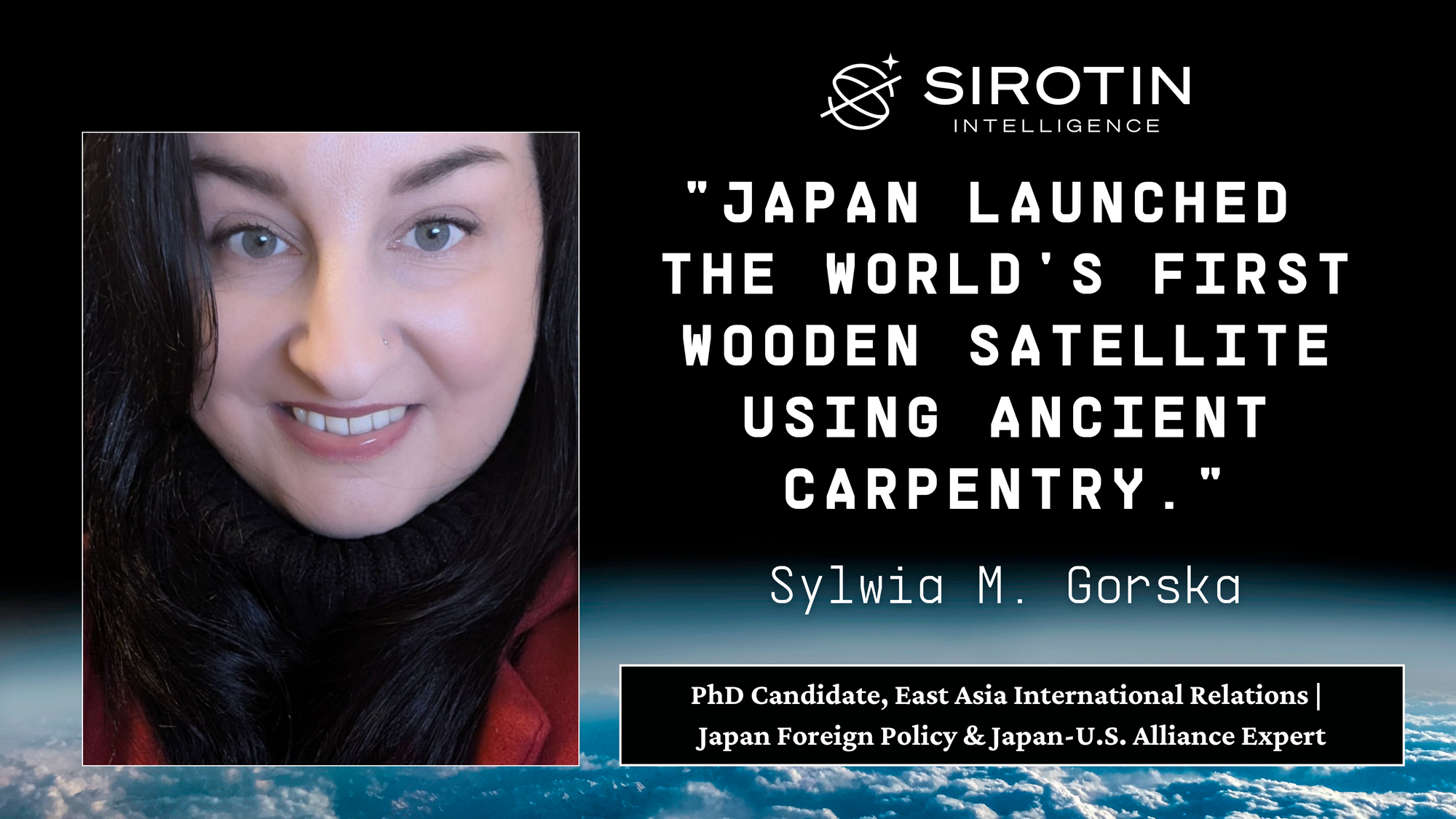
About Sylwia Gorska
Sylwia M. Gorska is an expert in East Asian international relations and Japan's foreign policy, currently completing her PhD in International Relations at the University of Central Lancashire (UK). Her doctoral research examines Japan-U.S. alliance dynamics in space debris mitigation, analyzing how space sustainability challenges intersect with alliance politics, dual-use technology dilemmas, and Japan's pacifist identity.
Her interest in space security emerged unexpectedly, sparked by a growing recognition that rapid technological advances in space are generating complex security and governance challenges. What began as a chance discovery evolved into a focused research agenda on space security within the broader international relations landscape.
Her wider expertise includes the political and strategic implications of emerging technologies, space innovation, nuclear energy, and the evolving security architecture of East Asia. She also holds a Master's degree in International Relations from the same institution, where her dissertation focused on Japan-South Korea bilateral relations and the diplomatic management of historical grievances.
For more information, reach out to Sylwia at SMGorska1@uclan.ac.uk
For further reading, read Sylwia’s publication on Nuclear Safety and Energy Security via the Global Taiwan Institute.
Read her full interview here.

About Joseph Weiss
Joseph Weiss is an industry expert on control systems and electronic security of control systems. Mr. Weiss spent more than 14 years at the Electric Power Research Institute (EPRI), the first 5 years managing the Nuclear Instrumentation and Diagnostics Program. He was responsible for developing many utility industry security primers and implementation guidelines. Mr. Weiss serves as a member of numerous organizations related to control system security. He is also an invited speaker at many industry and vendor user group security conferences, has chaired numerous panel sessions on control system security, and is often quoted throughout the industry.
He has published over 100 papers on instrumentation, controls, and diagnostics including chapters on cyber security for Electric Power Substations Engineering, Securing Water and Wastewater Systems, and Data Center Handbook. He coauthored Cyber Security Policy Guidebook and authored Protecting Industrial Control Systems from Electronic Threats. He has provided numerous presentations and meetings with US, Canadian, and other international government and industry organizations.
In February 2016, Mr. Weiss gave the keynote to the National Academy of Science, Engineering, and Medicine on control system cyber security. Mr. Weiss gave the keynote at the Texas A&M Instrumentation and Automation Symposium. He has also given lectures on control system cybersecurity to the University of California-Berkeley, Stanford, University of Illinois, Missouri Science and Technology, the Air Force Cyber College, the Naval Postgraduate School, and the US Military Academy among others.
Mr. Weiss has conducted SCADA, substation, nuclear and fossil plant control systems, and water control systems vulnerability and risk assessments. He has conducted short courses on control system cybersecurity with members of the Idaho National Laboratory and the Pacific Northwest National Laboratory. He has amassed a database of more than 17 million actual control system cyber incidents. He was a member of the Transportation Safety Board Committee on Cyber Security for Mass Transit. He was a subject matter expert to the International Atomic Energy Agency on nuclear plant control system cyber security.
Mr. Weiss has received numerous industry awards, including the EPRI Presidents Award (2002) and is an ISA Life Fellow, Managing Director of ISA Fossil Plant Standards, ISA Nuclear Plant Standards, Managing Director of ISA Industrial Automation and Control System Security (ISA99) for 12 years, a Ponemon Institute Fellow, and an IEEE Life Senior Member. He has been identified as a Smart Grid Pioneer by Smart Grid Today. He is a Voting Member of the TC65 TAG and a US Expert to TC65 WG10, Security for industrial process measurement and control – network and system security and IEC TC45A Nuclear Plant Cyber Security. Mr. Weiss was featured in Richard Clarke and RP Eddy's book - Warning – Finding Cassandras to Stop Catastrophes. He was a Visiting Research Associate in the Computer Science Department at the University of Missouri Science and Technology. He has patents on instrumentation, control systems, and OT networks. He is a registered professional engineer in the State of California, a Certified Information Security Manager (CISM), a Certified in Risk and Information Systems Control (CRISC) and a member of Control's Process Automation Hall of Fame.
For more information, visit his blog at www.controlglobal.com/unfettered
Contact Joe Wiess at joe.weiss@realtimeacs.com.
Read his full interview here.

About Mike T. Swearingen
Mike T. Swearingen is a retired electric cooperative power systems engineer with over 20 years of experience working in every aspect of power systems operation including control systems, protection systems, transmission design, substation design, distribution design, and NERC compliance as well as regulatory matters. Named a Smart Grid Pioneer by Smart Grid Today in 2015, he is an IEEE Senior Member and holds a patent for a "Security System, Device, and Method for Operational Technology Networks."
Swearingen began his career as a Space Equipment Maintenance Specialist with the United States Air Force at Joint Defense Facility Nurrungar in Australia during Desert Shield and Desert Storm operations. After completing his Bachelor of Science in Computer Science/Mathematics Engineering at Eastern New Mexico University, he spent his civilian career with rural electric cooperatives, progressing from Engineering Assistant to Regulatory Compliance Manager before retiring in 2014 due to Parkinson's disease.
Throughout his career, Swearingen has been deeply involved in industry standards development and regulatory processes. He represented his cooperative as a member of the Southwest Power Pool's Transmission Working Group (TWG), Market Operations and Policy Committee (MOPC), and Market Working Group (MWG). He served as an analyst and independent merit reviewer on several projects at the Department of Energy (DOE) and was a technical advisor for the National Electric Energy Testing Research and Applications Center (NEETRAC).
As an author and researcher, Swearingen has presented and published two IEEE papers: "Real Time Evaluation and Operation of the Smart Grid using Game Theory" and "Regulatory Evolution and its Effect on System Operations and Security." He has published several articles for different periodicals within the power industry and has a paper on ResearchGate titled "Autonomous Self Aware Living Grid." He has participated in and reviewed several standards for publication and serves as an IEEE peer reviewer.
Swearingen co-authored IEEE Computer Magazine articles "There Is No Chilling When Your Control System Cybersecurity Is Unfulfilling" and "Resilient Without Zero Trust." He has spoken at the U.S. Air Force Cyber College, the National Sheriffs Association Annual Conference, ICS Cybersecurity Conferences, and NRECA TechAdvantage. He has also worked with Navy Surface Warfare and Dahlgren Labs on cybersecurity and the AURORA vulnerability.
Since retiring, Swearingen continues to serve as a consultant and advisor to government agencies and industry organizations on power system cybersecurity and operational challenges. He describes his current role as being like "that thick reference book that sits on the shelf that has some dust on it—when they can't figure out why something is happening with the electric grid, either cybersecurity or operationally, they take me off the shelf, dust me off, open me up, and start asking me questions."
For more information, reach out to Mike at michaeltswearingen@gmail.com.
Further Reading:
"Autonomous Self Aware Living Grid": https://www.researchgate.net/publication/341099227_Autonomous_Self_Aware_Living_Grid
"Real Time Evaluation and Operation of the Smart Grid using Game Theory": https://ieeexplore.ieee.org/document/5756714
"Regulatory Evolution and its Effect on System Operations and Security": https://ieeexplore.ieee.org/document/6194562
"What You Need to Know (and Don't) About the AURORA Vulnerability": https://www.powermag.com/what-you-need-to-know-and-dont-about-the-aurora-vulnerability/
Read his full story here.
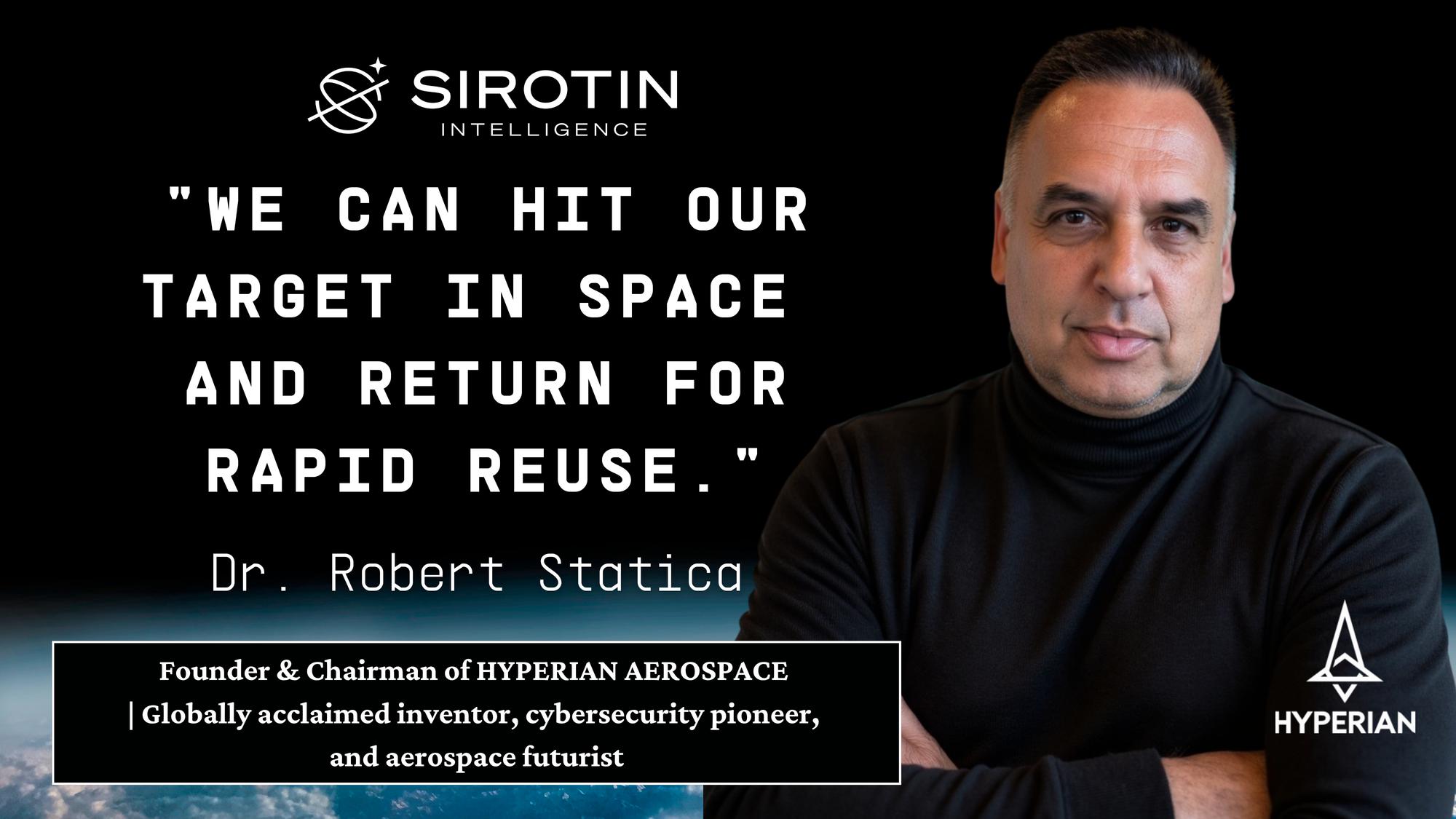
About Dr. Robert Statica
Dr. Robert Statica is a globally acclaimed inventor, cybersecurity pioneer, and aerospace futurist. As the Founder & Chairman of HYPERIAN AEROSPACE, he is spearheading a bold transformation of national defense, aviation, and space with breakthrough technologies in hypersonics, AI, and post-quantum secure systems.
With over 25 years of global leadership across military and space exploration programs, Dr. Statica has created and led the development of some of the most advanced aerospace platforms ever conceived, including:
BLACKSTAR – A 7th-generation, Mach 10 hypersonic NGAD fighter redefining modern air superiority.
HYPERLINER – A Mach 10 commercial aircraft capable of transporting 220 passengers anywhere on Earth in under 1.5 hours.
HYPERSPACE Plane – A single-stage-to-orbit (SSTO) launch system for civilian and military satellite deployment, ISR, and orbital operations.
HYPERSPACE Interceptor – The world's first SSTO space-based fighter for intercepting hypersonic missiles, enemy satellites, space debris, and asteroids.
NYX – The first-ever multi-domain, multi-weapon national missile defense platform, combining Mach 15–25 hypersonic missiles, high-energy lasers, directed energy weapons (DEW), EMPs, space-based kinetic weapons, and cyber defense across air, land, sea, space, and cyber domains.
Fortress X – A next-generation border defense platform operating across multiple domains with advanced sensors, autonomous drones, counter-intrusion systems, and AI-powered threat mitigation.
Dr. Statica is also the inventor and creator of Wickr, the world's first end-to-end encrypted communication and collaboration platform—acquired by Amazon in 2021. Both Wickr and KATIM (most secure phone in the world - acquired by EDGE) have never been hacked, setting the gold standard for secure communications globally.
Continuing his legacy in cybersecurity, he is the creator of:
Z3RO – A post-quantum secure collaboration platform for military, intelligence, and government operations.
GUARDA VPN – A military-grade, zero-leak VPN for secure national communications.
Helix25AI – An AI-powered encryption engine protecting the most critical infrastructure and command systems against emerging threats.
Throughout his career, Dr. Statica has led companies with combined budgets exceeding $3 billion, held roles as CEO, CTO, and SVP of Technology & Research, and served as a strategic advisor to defense agencies, airlines, and Fortune 500 corporations across the U.S., Europe, Middle East, and Asia.
At HYPERIAN AEROSPACE, Dr. Statica's mission is clear: to deliver the next frontier in global security, rapid transportation, and space dominance—powered by artificial intelligence, defended by quantum-resilient encryption, and engineered for the future of humanity.
Interview coming soon...
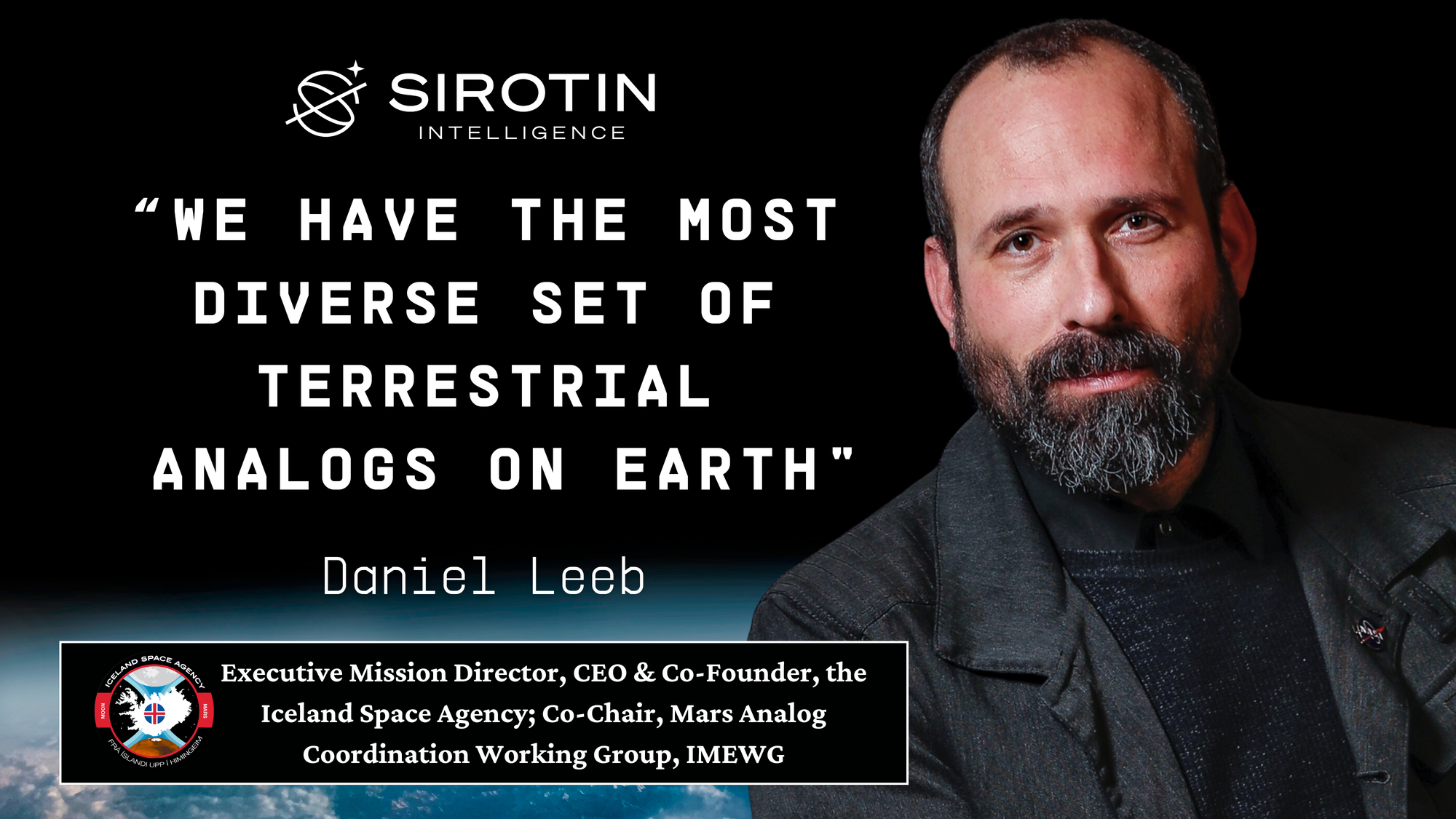
About Daniel Leeb
Daniel Leeb is the Executive Mission Director and CEO of the Iceland Space Agency (ISA), a privately organized, non-governmental institution that works directly with the Ministry of Higher Education, Science, and Innovation and the University of Iceland.
He currently leads interdisciplinary teams developing research solutions that position Iceland as a key partner in space exploration, innovation, and planetary science.
In 2023, Daniel was named Co-Chair of the International Mars Exploration Analog Working Group, participated in the first ESA/NASA-led Mars Sample Return Analog collection mission, coordinated and led Iceland’s signing of the Artemis Accords, and became a Co-Investigator and collaborator on the NASA-funded HABMARS research project, led by Dr. Roy Price. This spring, the ISA launched the TACAT project to leverage remote sensing and AI/ML to map and analyze the evolving terrestrial analogs in the Arctic with their celestial counterparts.
On July 20th, the 55th anniversary of the Apollo 11 Moon landing, Daniel launched the ISA’s MÁNI program, which will utilize Iceland’s lunar and martian terrain to inform, test, and train Artemis-related technology, crews, and missions. In September the ISA hosted the International Mars Exploration Working Group in Reykjavik, bringing together 15 of the world’s leading space agencies to discuss international collaboration on current and future Mars missions.
In December 2024, the Ministry of Higher Education, Science, and Innovation announced funding for the Iceland Research Institute of Space Science (IRISS) which will be a partnership between the University of Iceland, University of Akureyri, University of the Arts, and the Iceland Space Agency. IRISS constitutes a significant leap for Iceland, it will be a hub for Iceland’s brightest minds to collaborate with the global space community, forming partnerships across the academic, public, and private sectors, Daniel will be leading the establishment of IRISS in 2025.
Daniel Leeb also serves on the advisory council of the Krach Institute of Tech Diplomacy and the advisory board of the Scientific Exploration Society. His mission statement for both the ISA and IRISS is:
"To inspire future generations to reach for the stars while fostering a deeper understanding and conservation of the Earth beneath our feet."
For more information, reach out to Daniel at dan@icelandspaceagency.is
Interview coming soon...
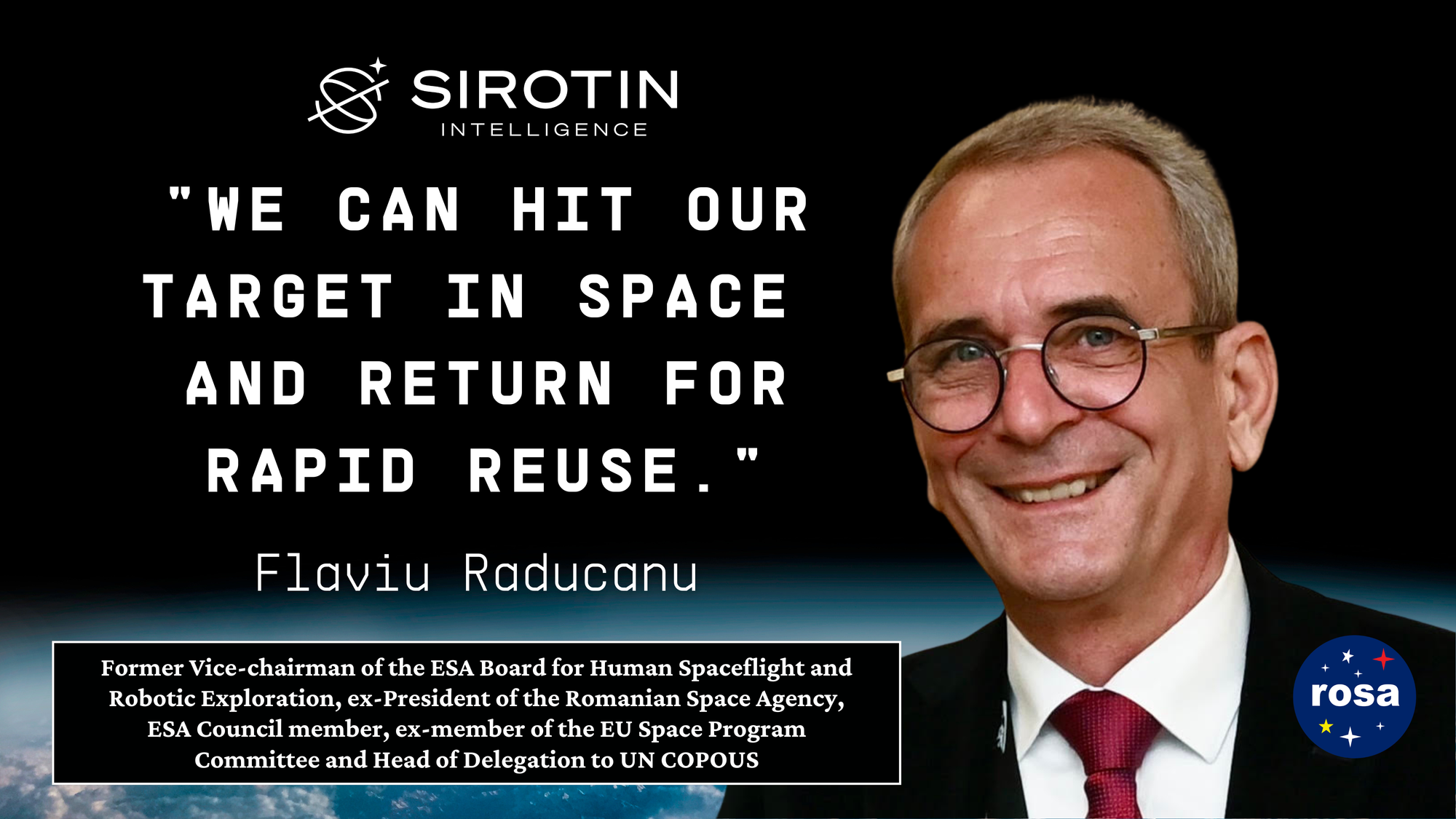
About Flaviu Raducanu
Former Vice-chairman of the ESA Board for Human Spaceflight and Robotic Exploration, ex-President of the Romanian Space Agency, ESA Council member, ex-member of the EU Space Program Committee and Head of Delegation to UN COPOUS, but also a veteran of the global Aerospace Industry leaders, dr. Flaviu Raducanu brings along a unique combination of career experience spanning almost 40 years, 3 continents, SME and Industry giants, military and civilian, national and international government institutions.
“At the core of my professional roadmap was to join the real world, hands-on, on-the-job experience – on whole value chain of complex systems from research as a lead scientist, to a design engineer and project manager, to the integration floor, testing and commissioning to the field deployment and operations – with the timely and appropriate formal world-class education on the work topics – from Aerospace Engineering, to MBA, to PhD in AI. Thus, I rose to the highest levels on the global scene in Europe, America and Asia despite being born in a small Central European country.
This journey took me from the industrial zones to the world of Angel Investors, VCs and Investment Funds, allowing M&A and Business Reengineering and Organizational Transformations, leading to the Corporate Boardrooms. I had the opportunity to be Chief Operations Officer, CEO and President in the business world and to directly manage project portfolios of up to 10 billion Euros. My business journey took me from startups in Romania or those in Silicon Valley, Singapore or Europe, to the top management of the big aerospace and defense actors like Airbus Defence and Space, Thales or Lockheed Martin.”
Read his full interview here.
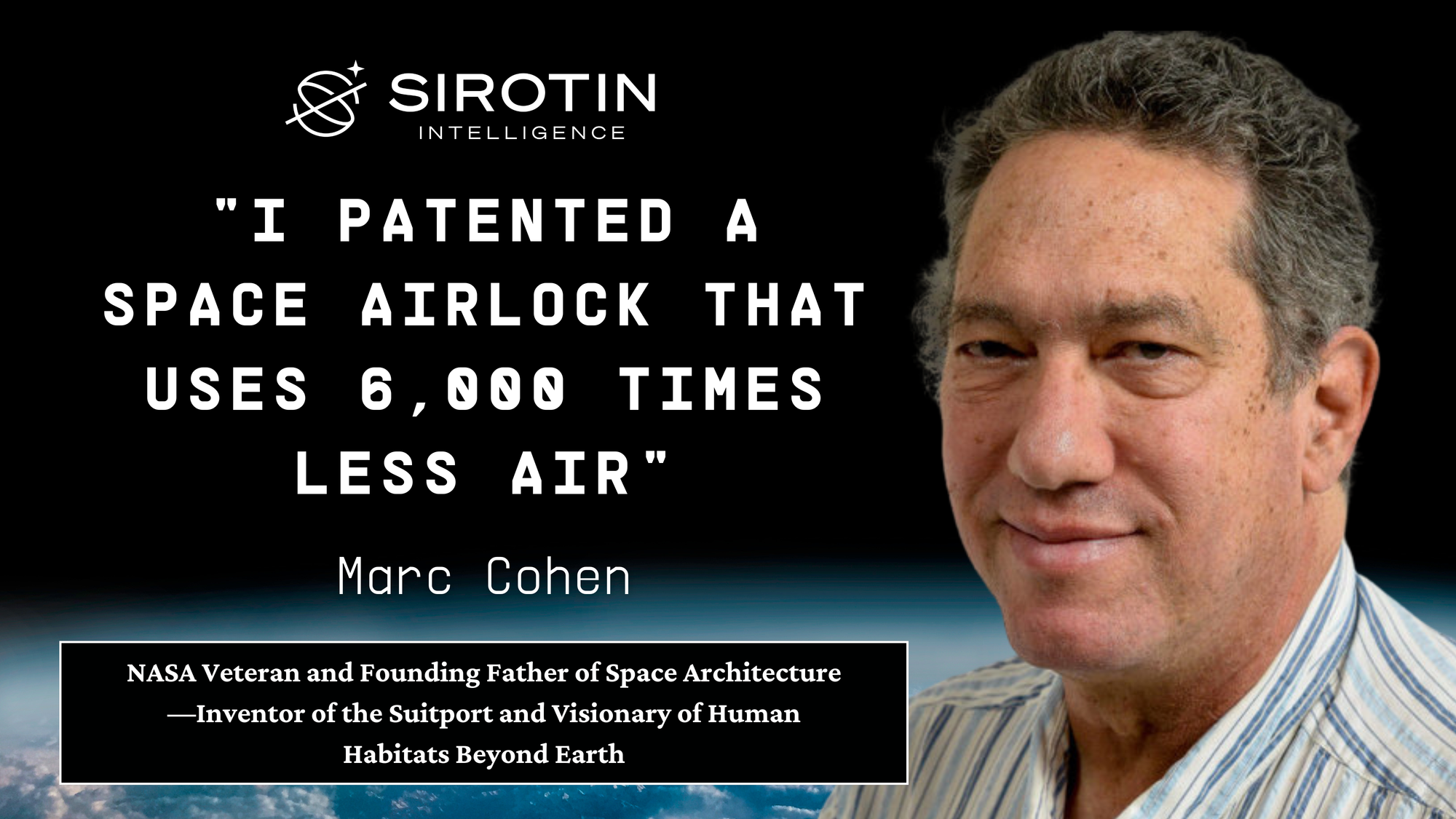
About Marc Cohen
Marc M. Cohen is a licensed architect, who is a founder of the field of Space Architecture. He retired from NASA where he worked on SpaceLab, ISS, and humans to the Moon and Mars. He then worked for Northrop Grumman on the Constellation Lunar Program. Next, he opened Astrotecture®, winning several NASA grants, including a NASA Innovative and Advanced Concept grants for the Robotic Asteroid Prospector and the Water Walls Life Support Architecture. Next, joined the new Space Cooperative, with a focus on a new concept for the Antaeus Planetary Quarantine Facility to receive samples returned from Mars at the Deep Space Gateway in lunar orbit. Now he is an independent space architect and scholar. At this time, he is writing a book about Space Architecture. Marc holds architecture degrees from Princeton, Columbia, and the University of Michigan. He lives in Milford, CT, with his wife, Jane Jacobson.
Read his full story here.
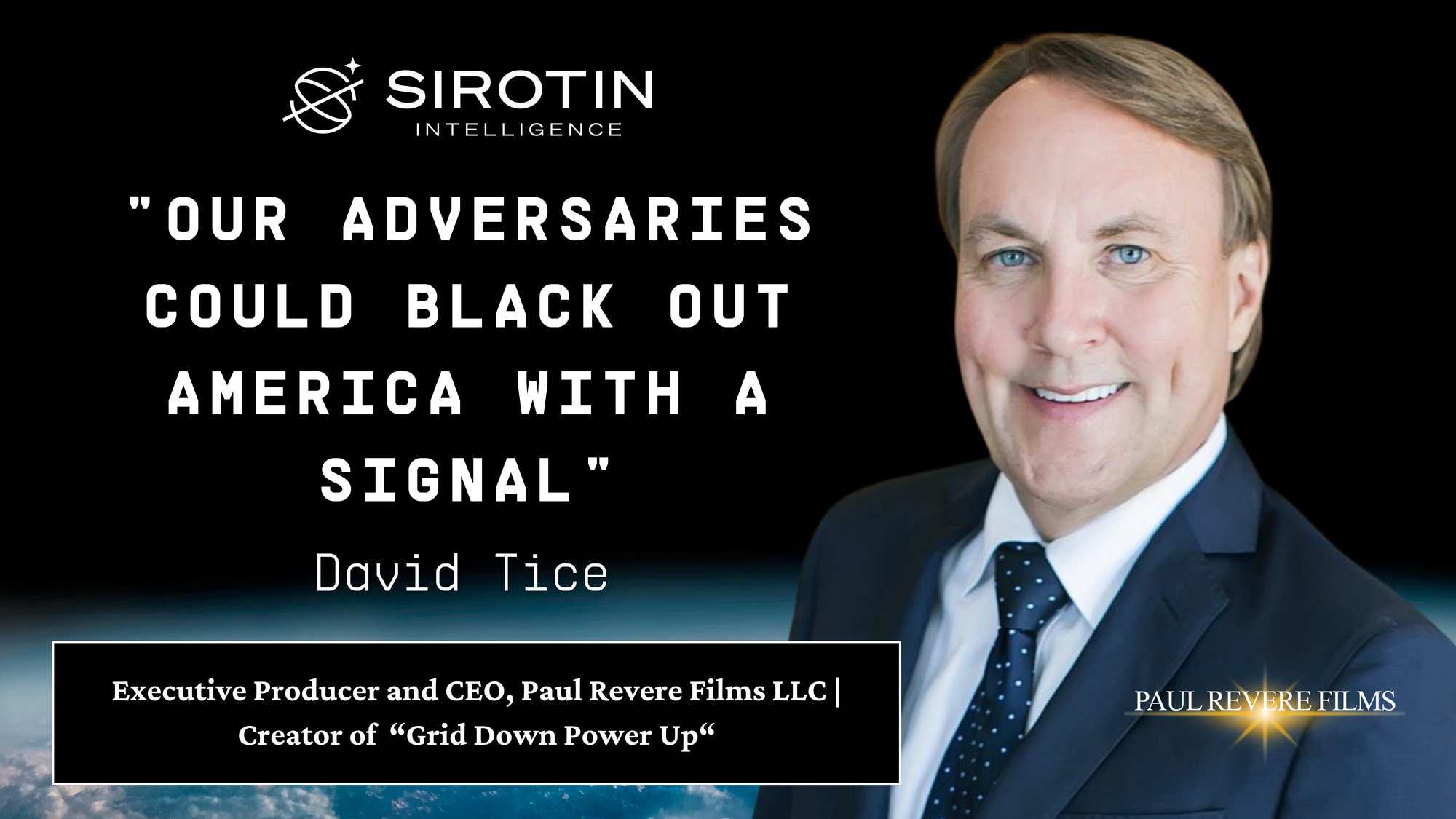
About David Tice
David Tice founded the Prudent Bear Fund (BEARX) serving as portfolio manager from 1996-2008. During his last ten-year tenure as manager, BEARX increased in value at a 8.0% annualized rate, while the S&P 500 lost 1.4% annually. His time at BEARX ended upon his successful sale of the fund in December of 2008 to Federated Investors, a NYSE company
David’s investment career began in 1988 with the publication of `Behind the Numbers’, an investment research service giant that focused on “Quality of Earnings Warnings and Sell Recommendations” for more than 150 money managers.Tice gained national recognition making dozens of guest appearances on national business television networks while authoring articles published in Barron's. David dutifully assumed the role of a “Cassandra” to warn investors about the perils of investing near the end of a secular bull market; including the risk of relying on credit growth to expand the economy. In September 1999, Mr. Tice hosted the New York symposium, "The Credit Bubble and its Aftermath" to alert media, investors and policy makers about the threats created by the historic expansion of credit. The very next day, the Symposium was featured on the front page of The Wall Street Journal. In June 2001, Tice testified before Congress regarding conflicts of interest on Wall Street and the consequences of capital markets that lack integrity.
Since his sale of Prudent Bear, Tice currently serves as acting President of Tice Capital, Senior Advisor of the Ranger Equity Bear ETF (HDGE), and partner of Moran Tice Capital Management, LLC, a firm that offers ‘fiat money defense’ money management through SMAs and a fund. In the early 2000’s, Tice served as Executive Producer and financier of the major motion picture Soul Surfer, released in 2011.David's passion for film led him to further success as an early-stage investor when he co-financed the script for the Sony feature film When the Game Stands Tall. In the last two years, David completed production on a documentary about the vulnerability of our power grid, currently entitled Grid Down, Power Up. The documentary will serve as a springboard to initiate an organized social action movement to secure our nation's power grid.
Interview coming soon...
